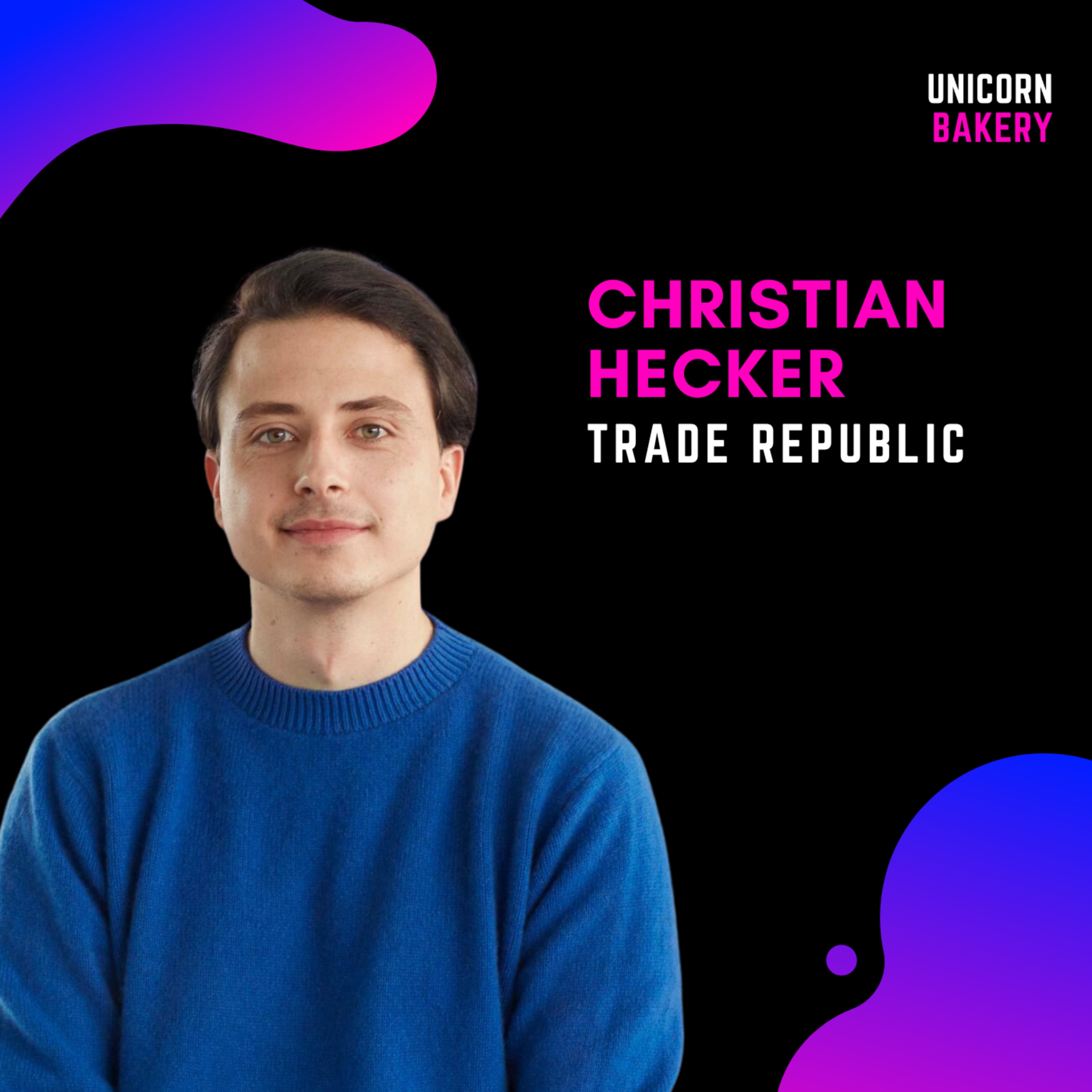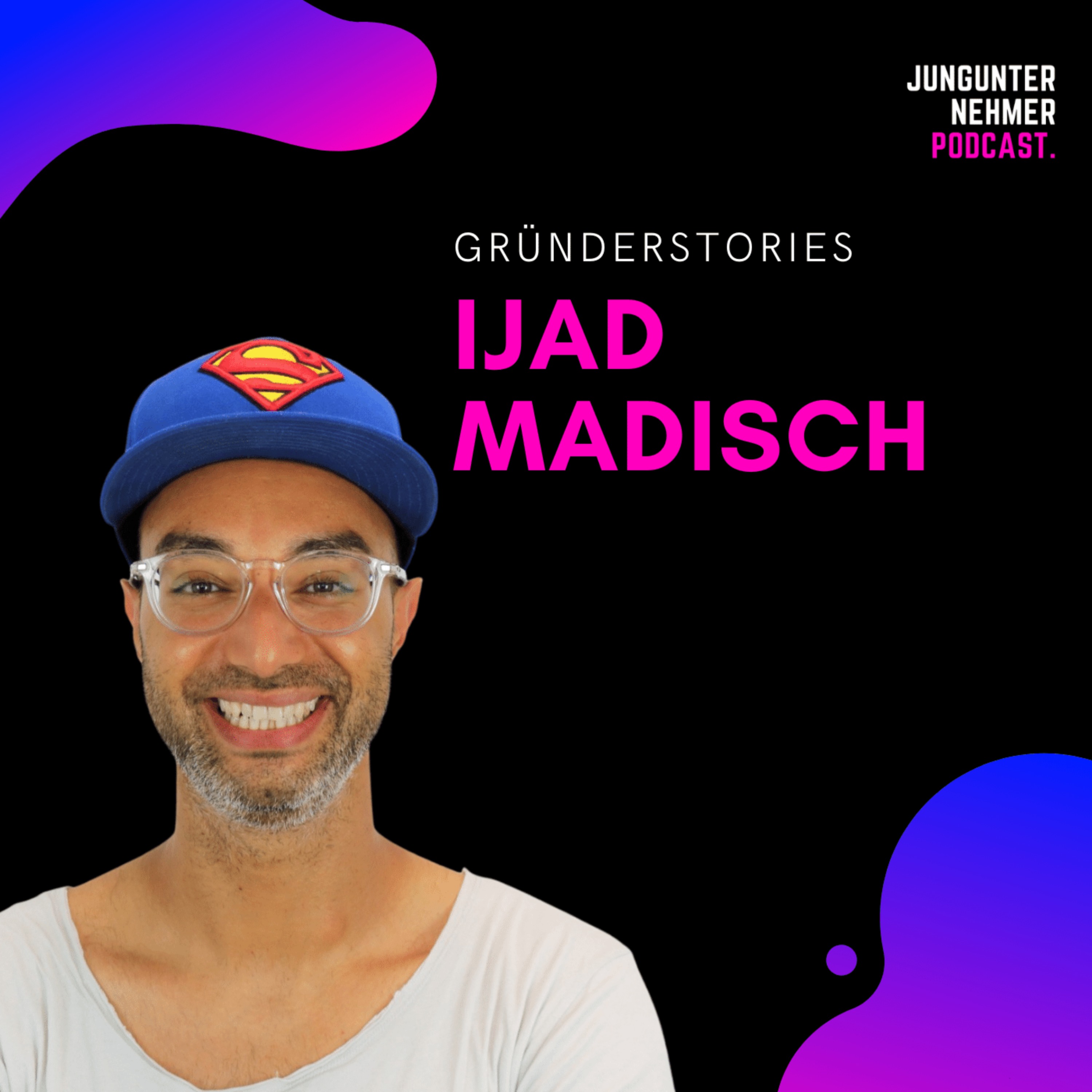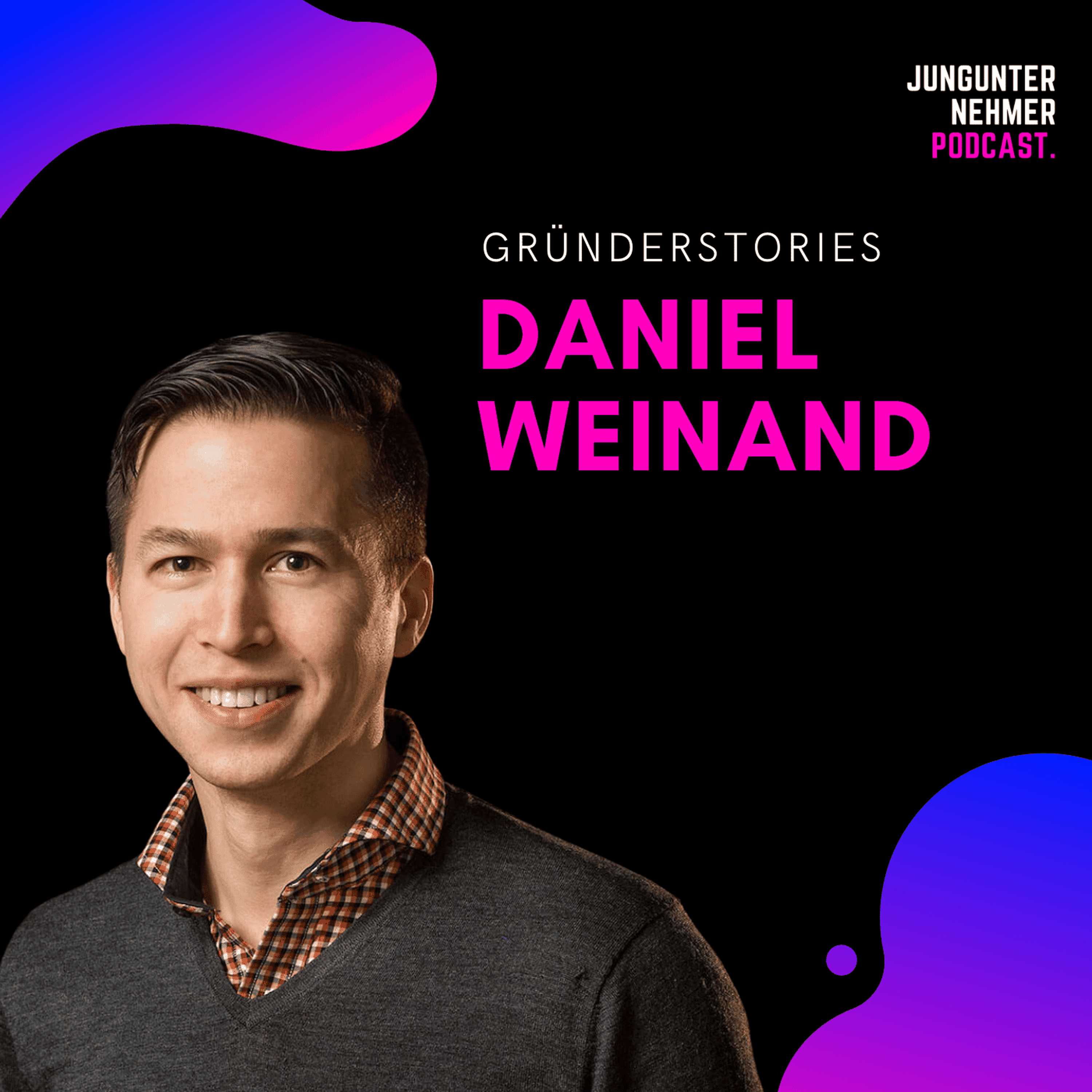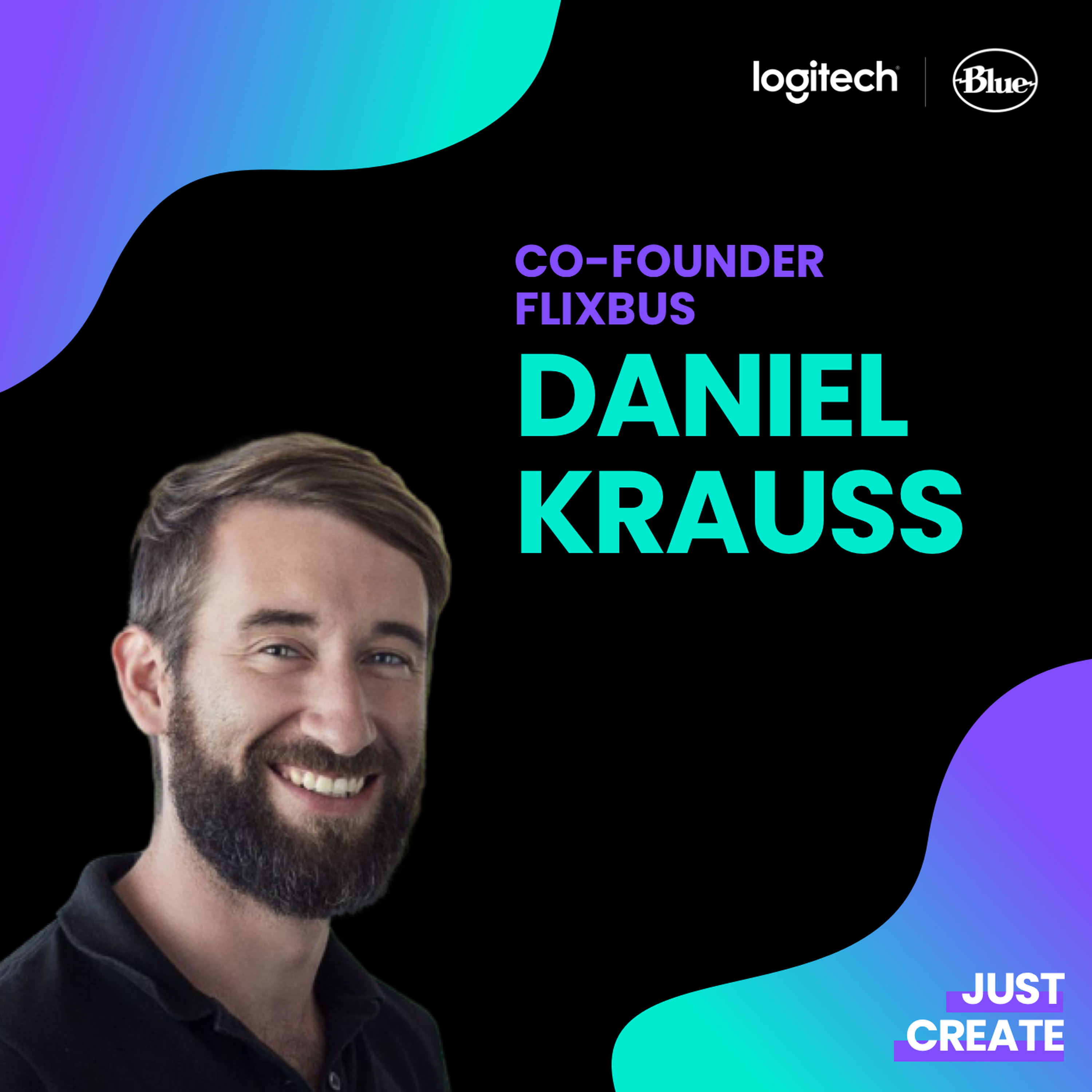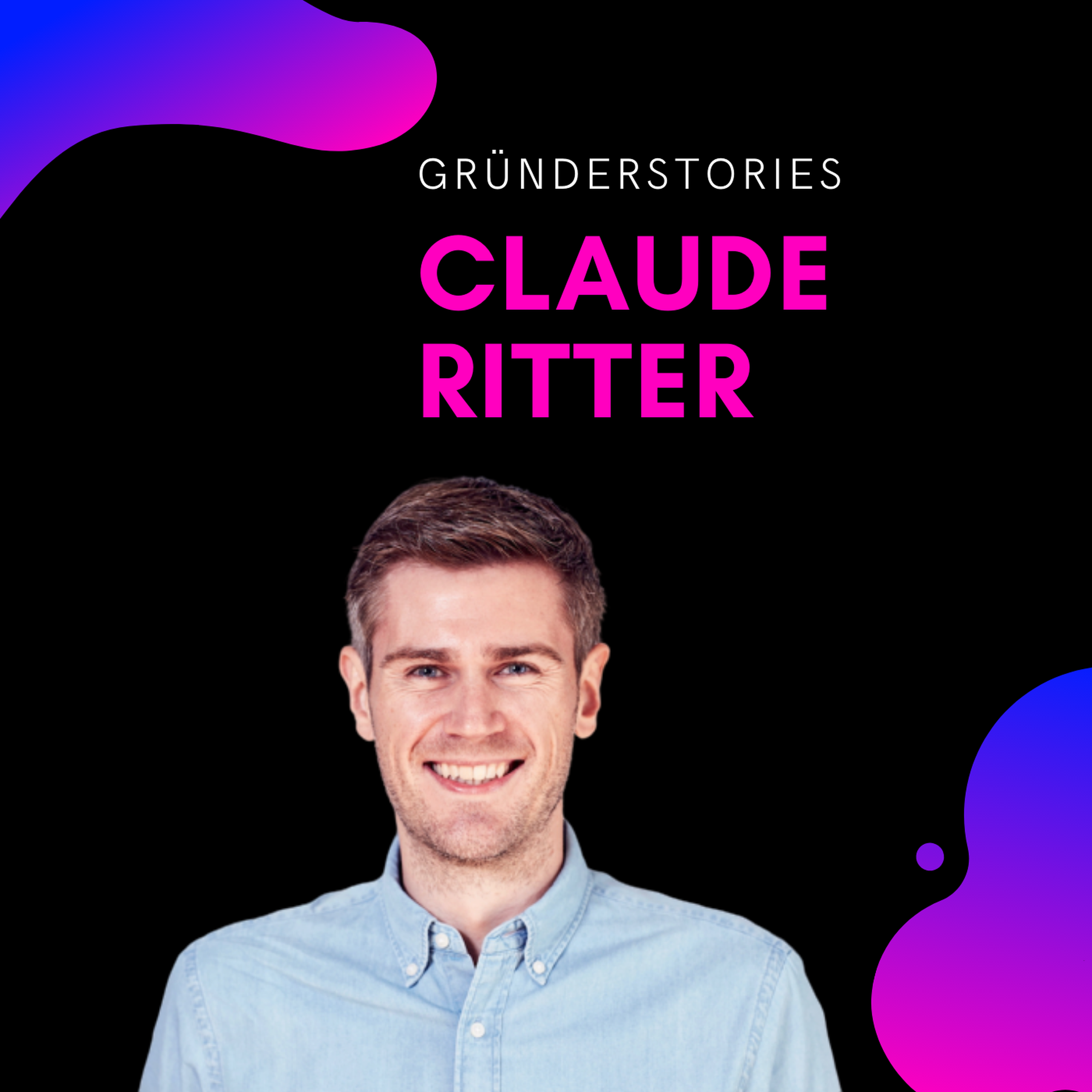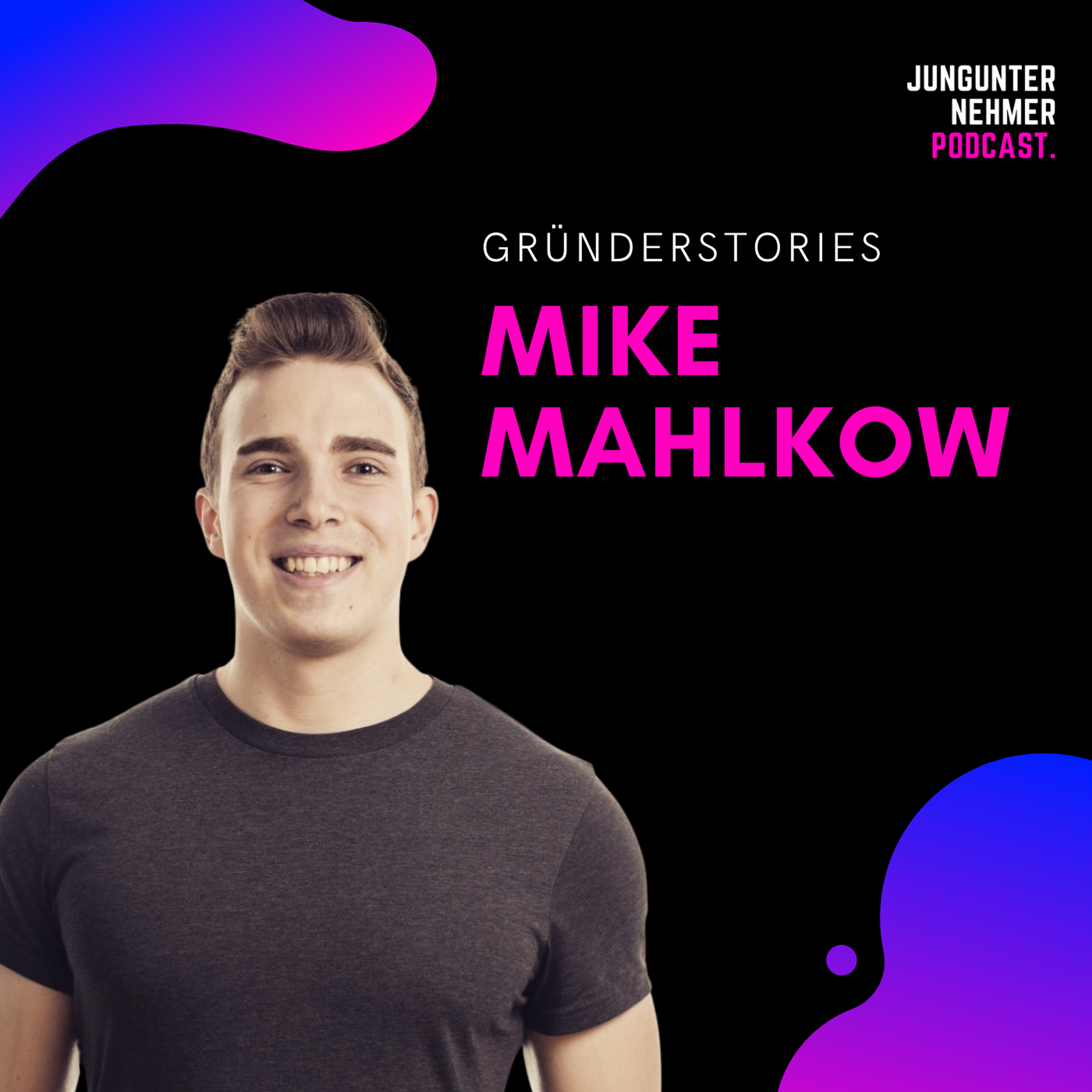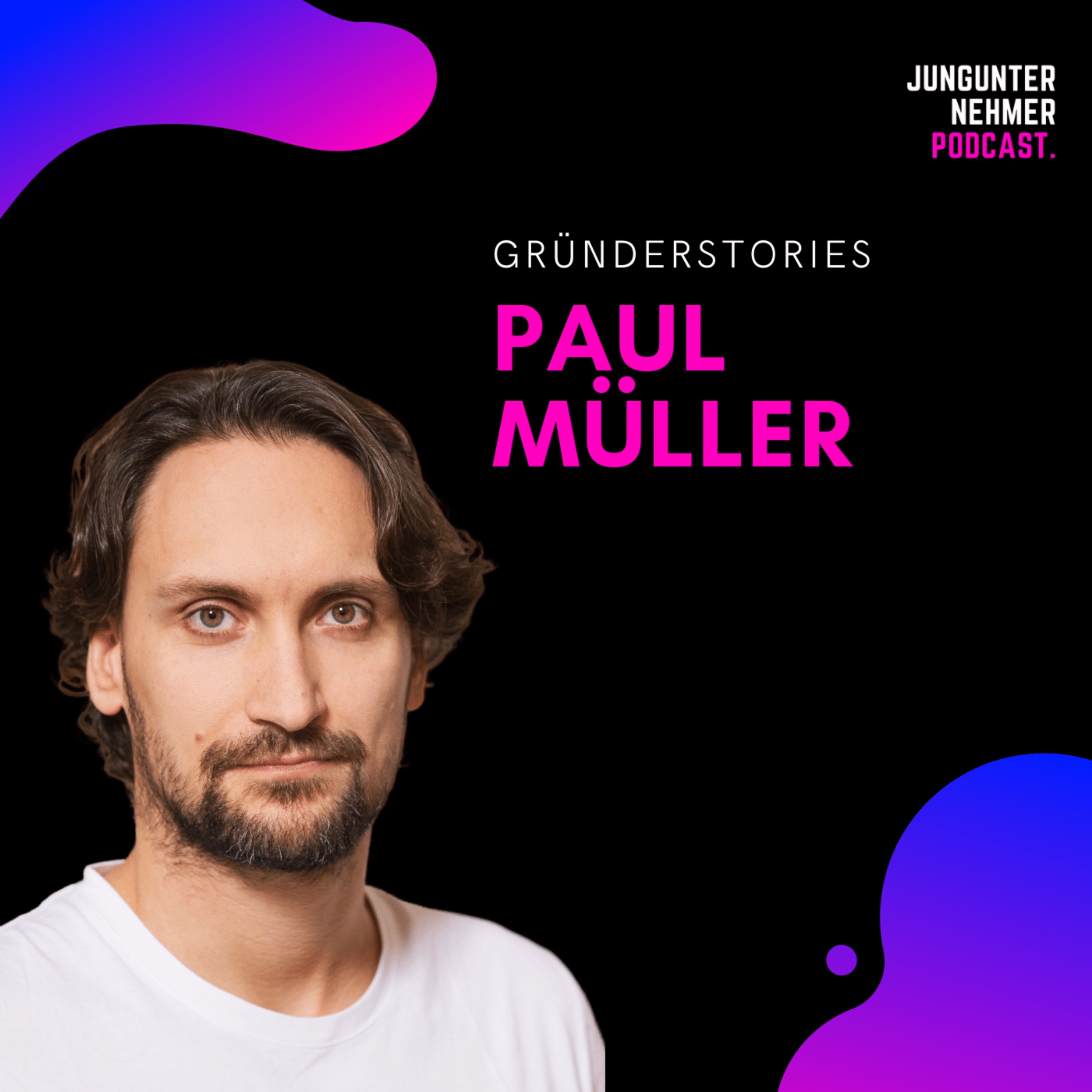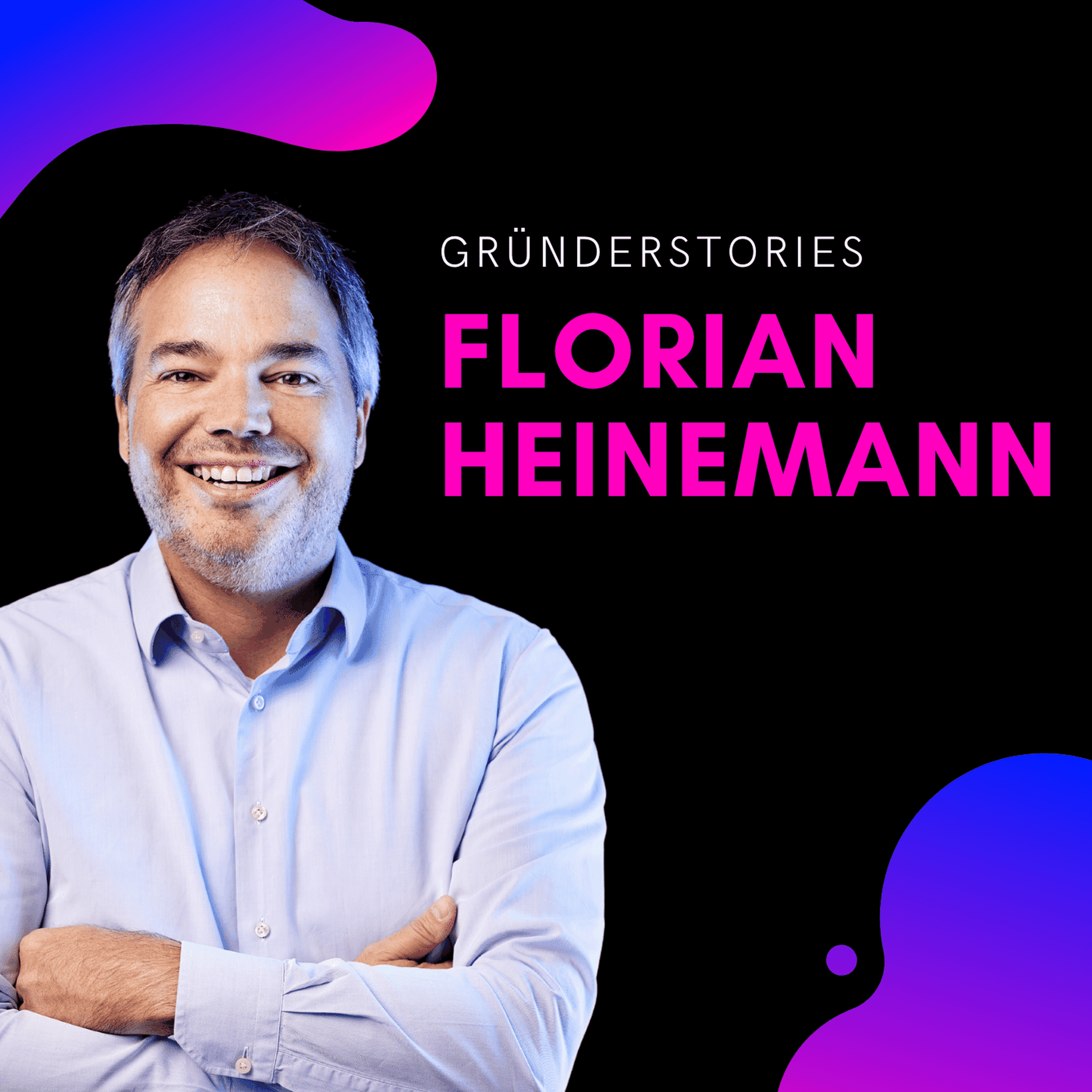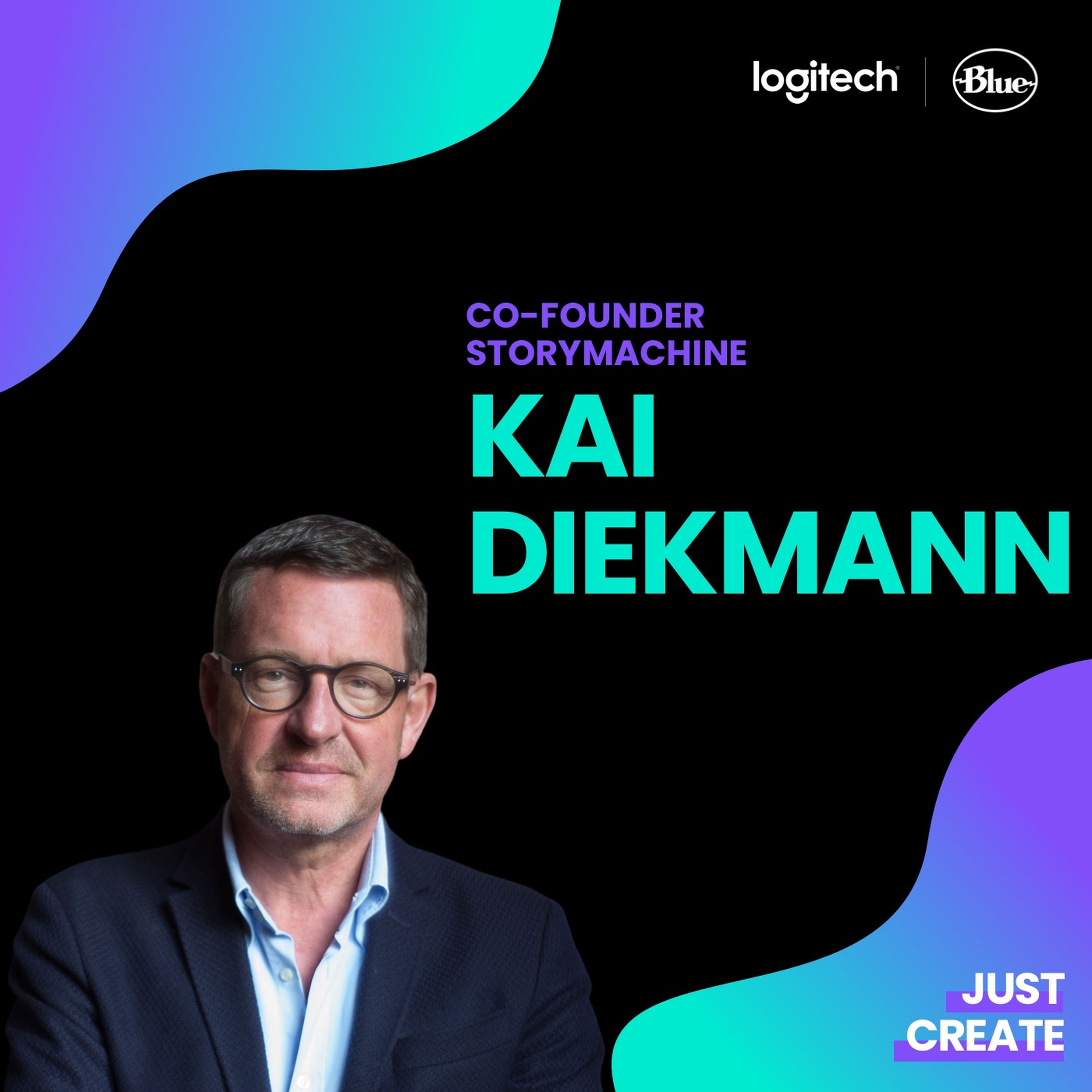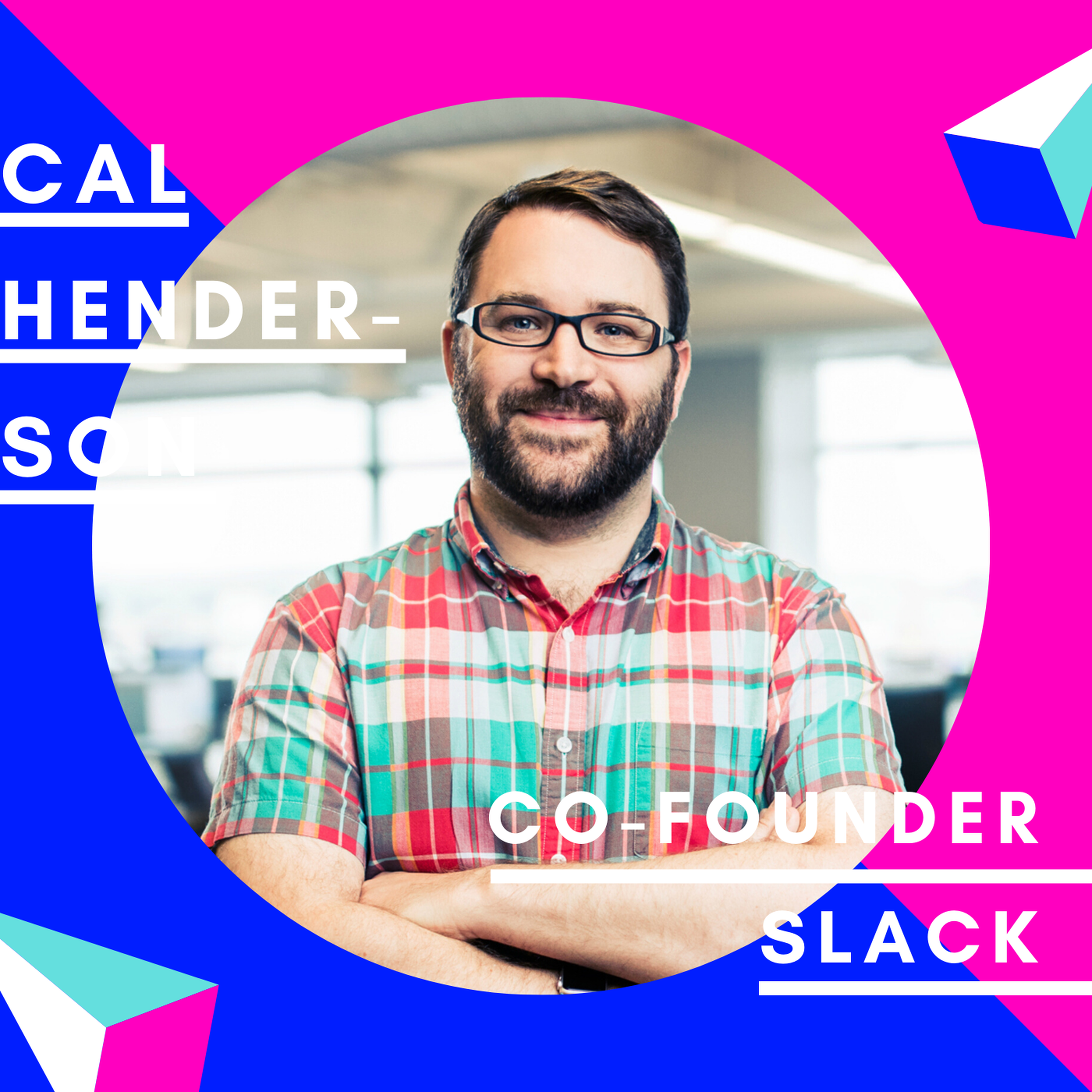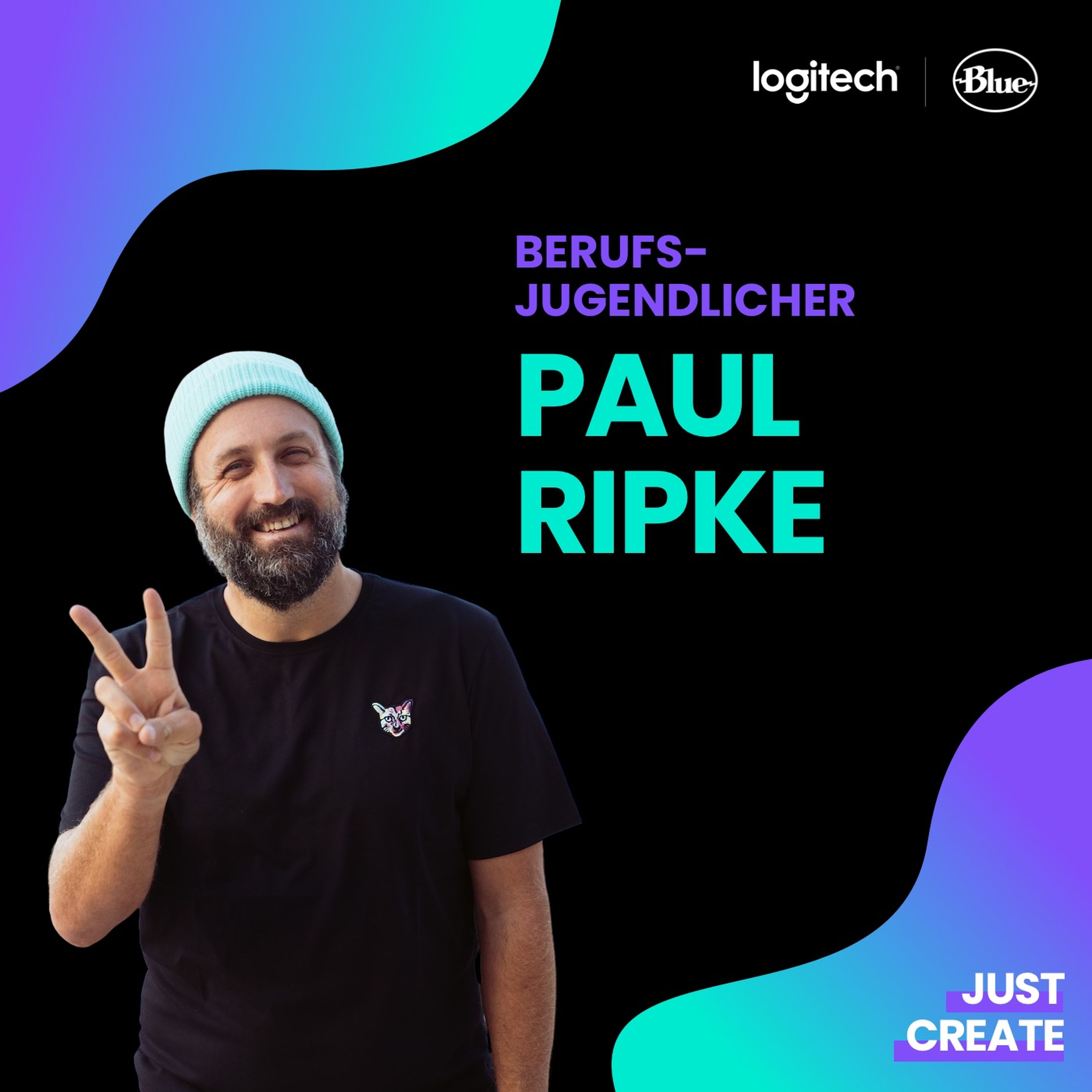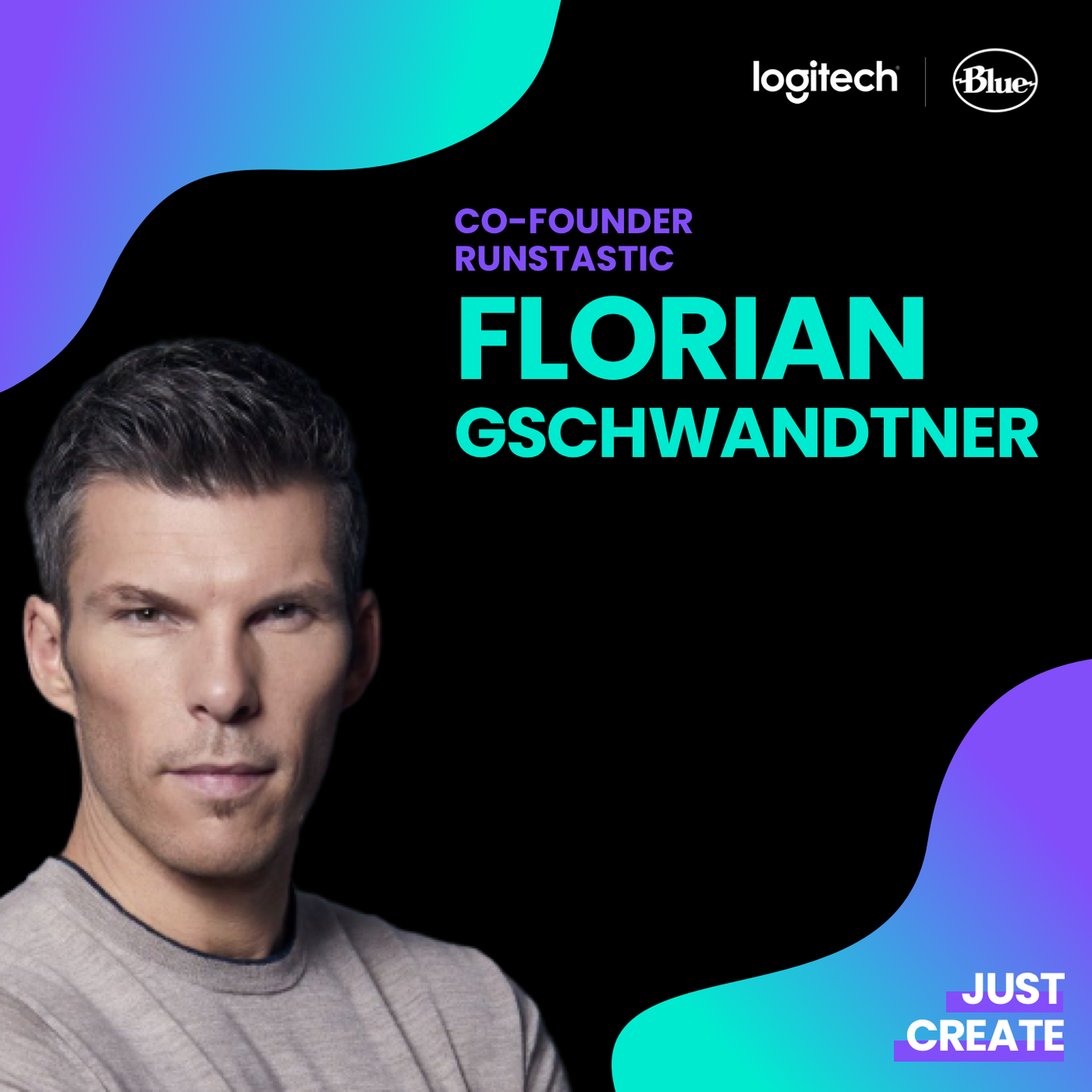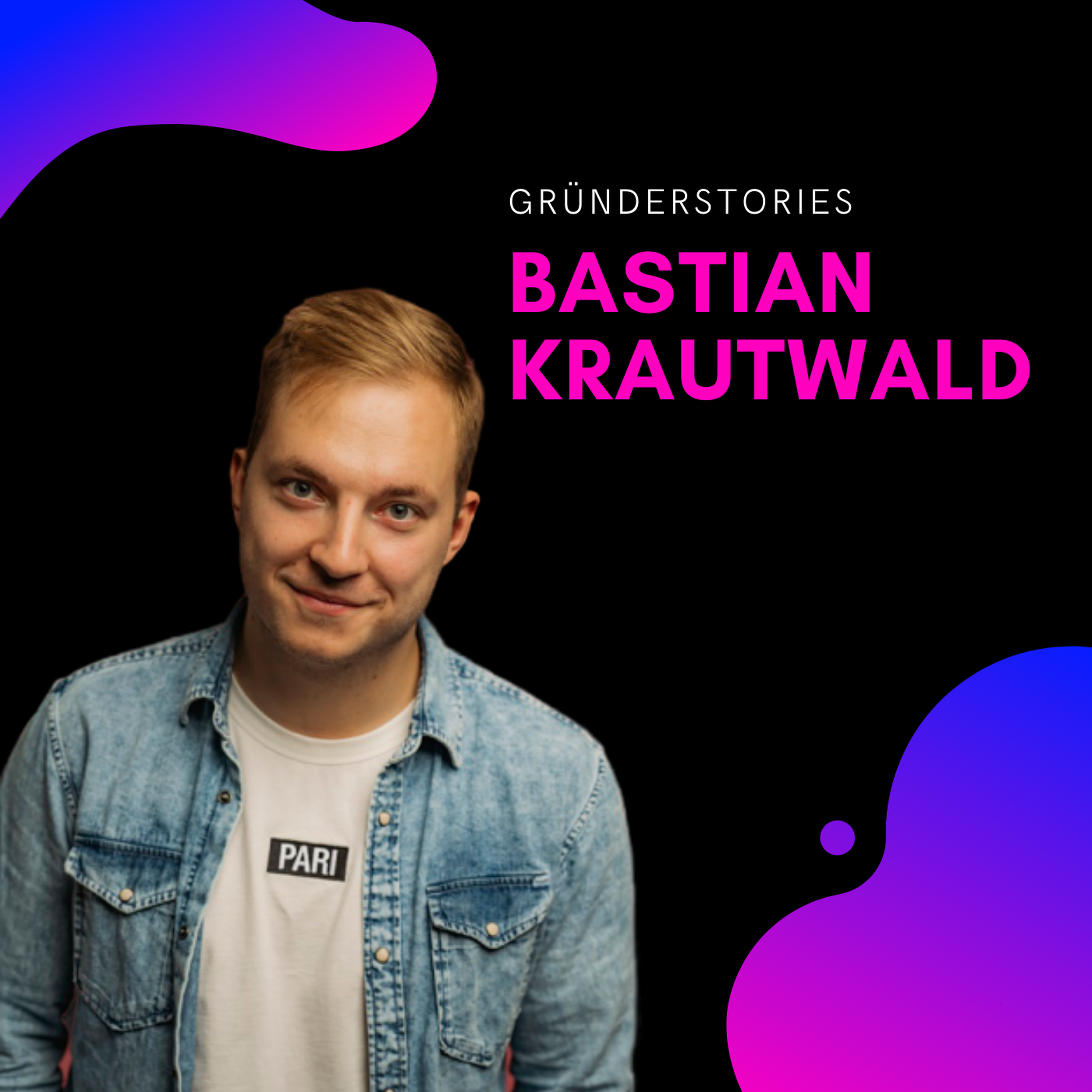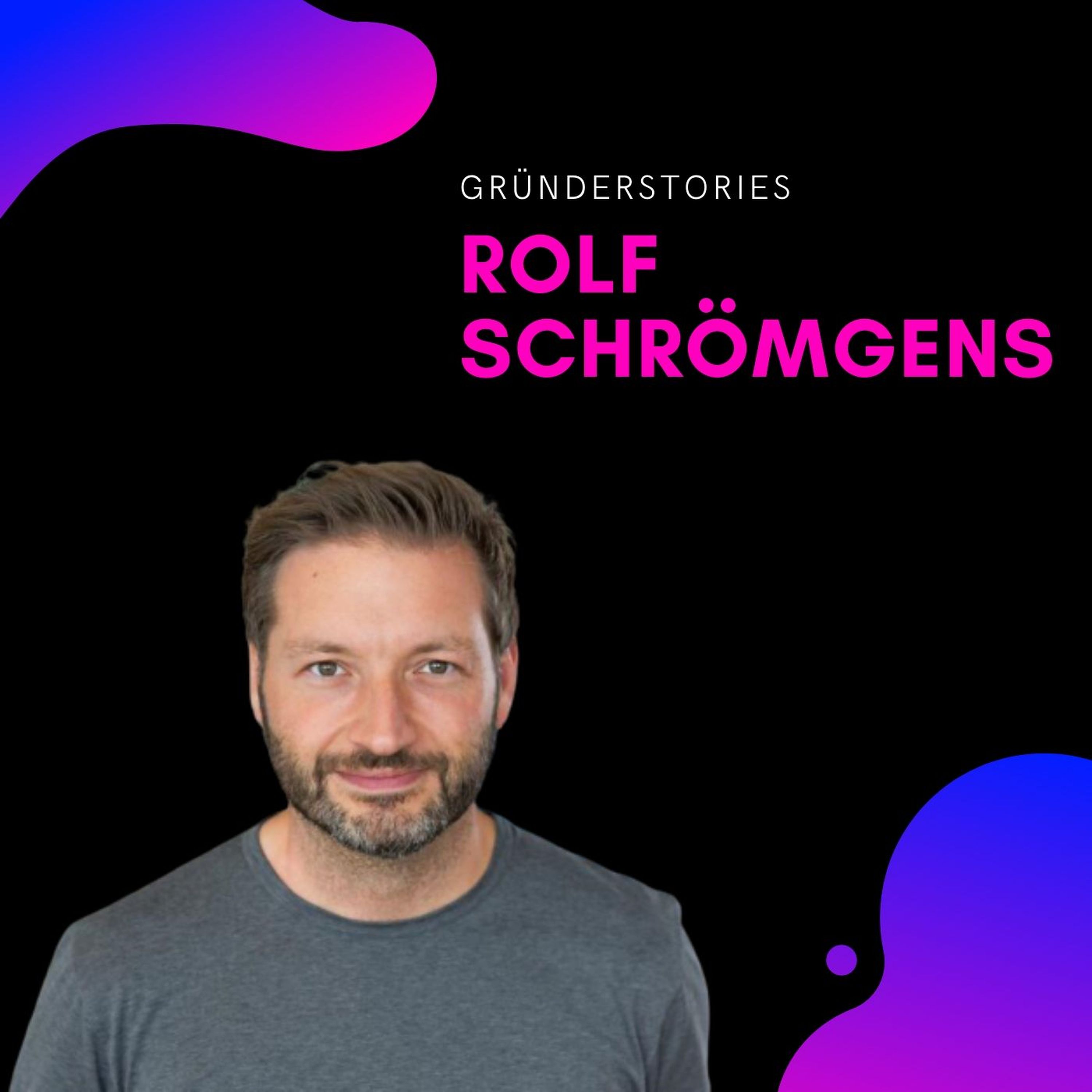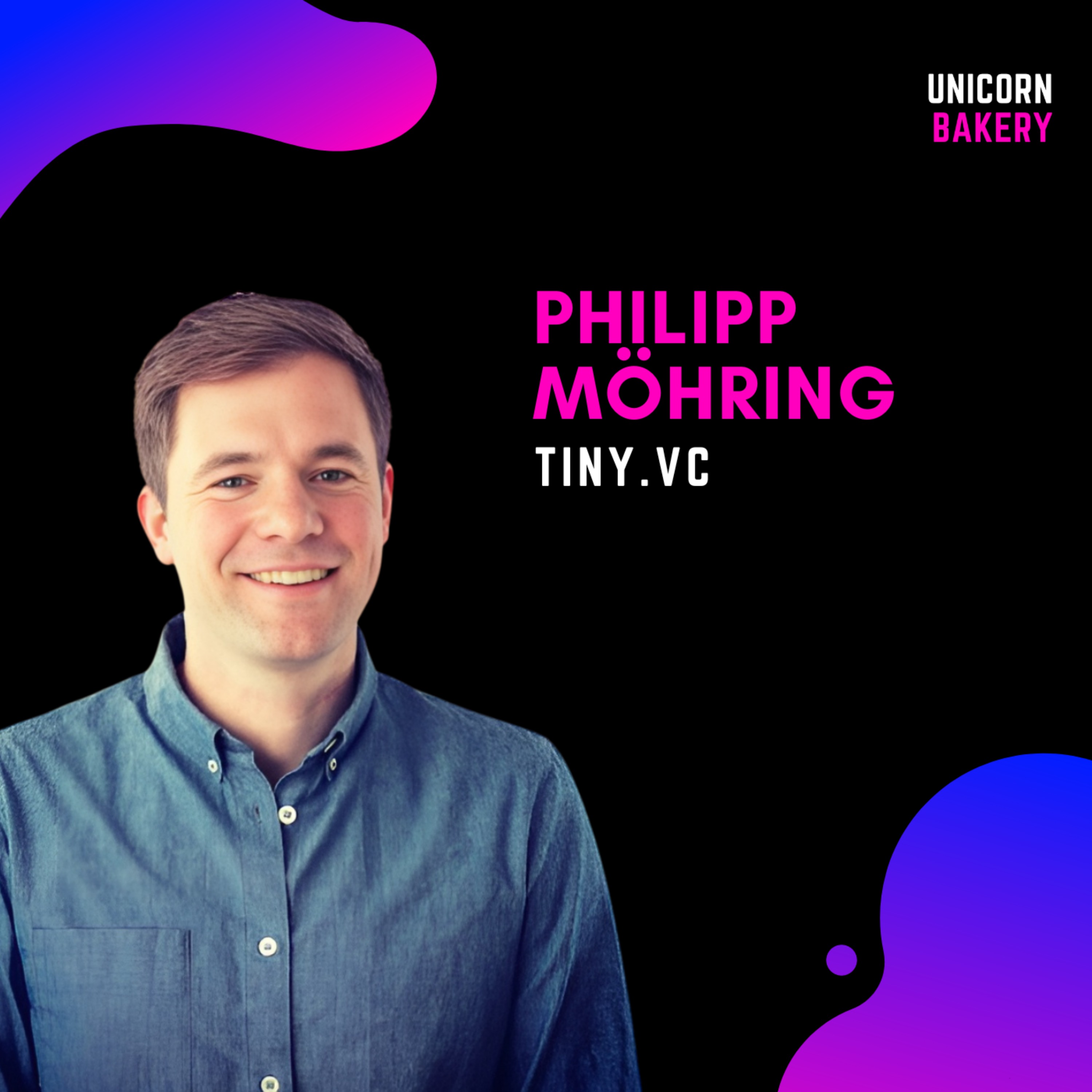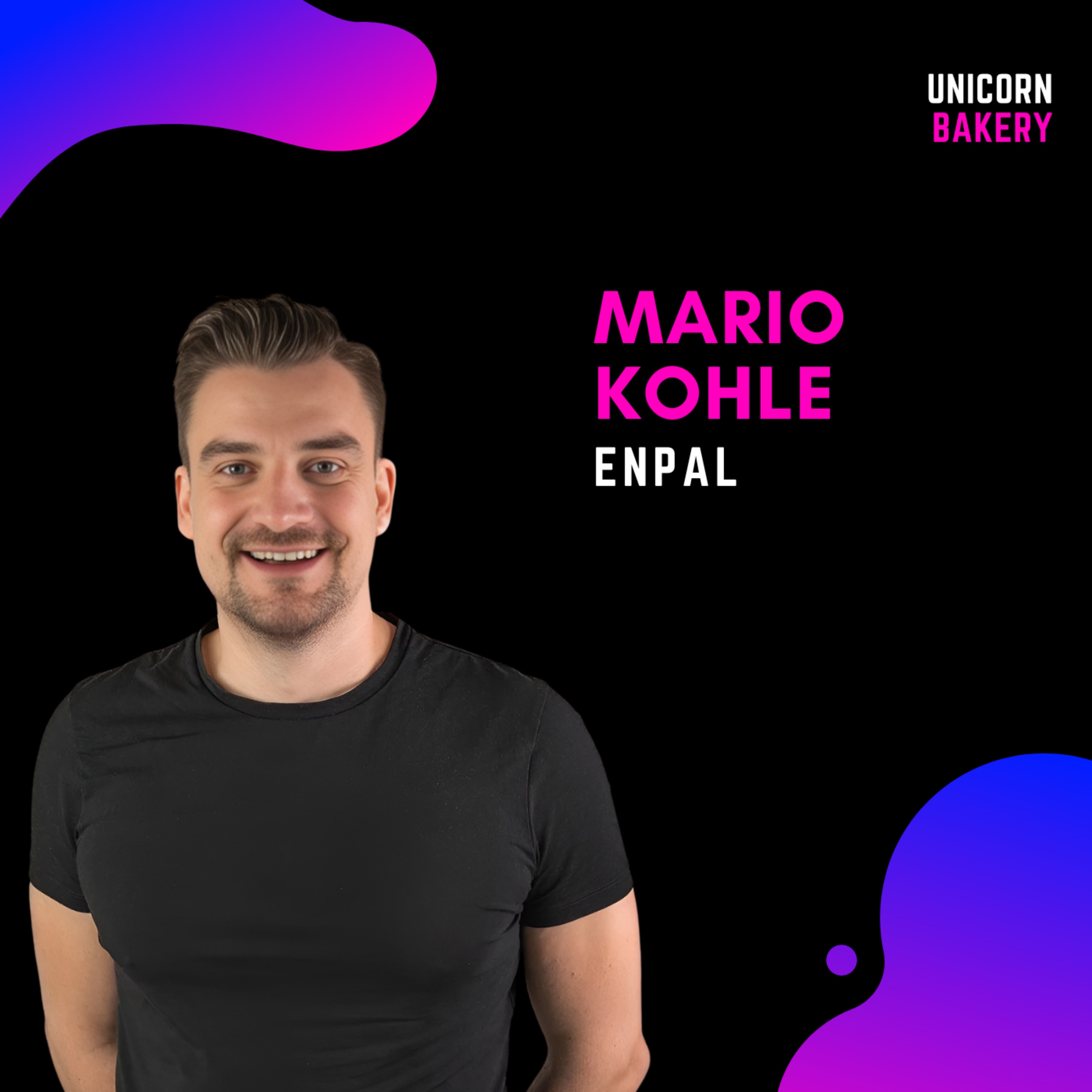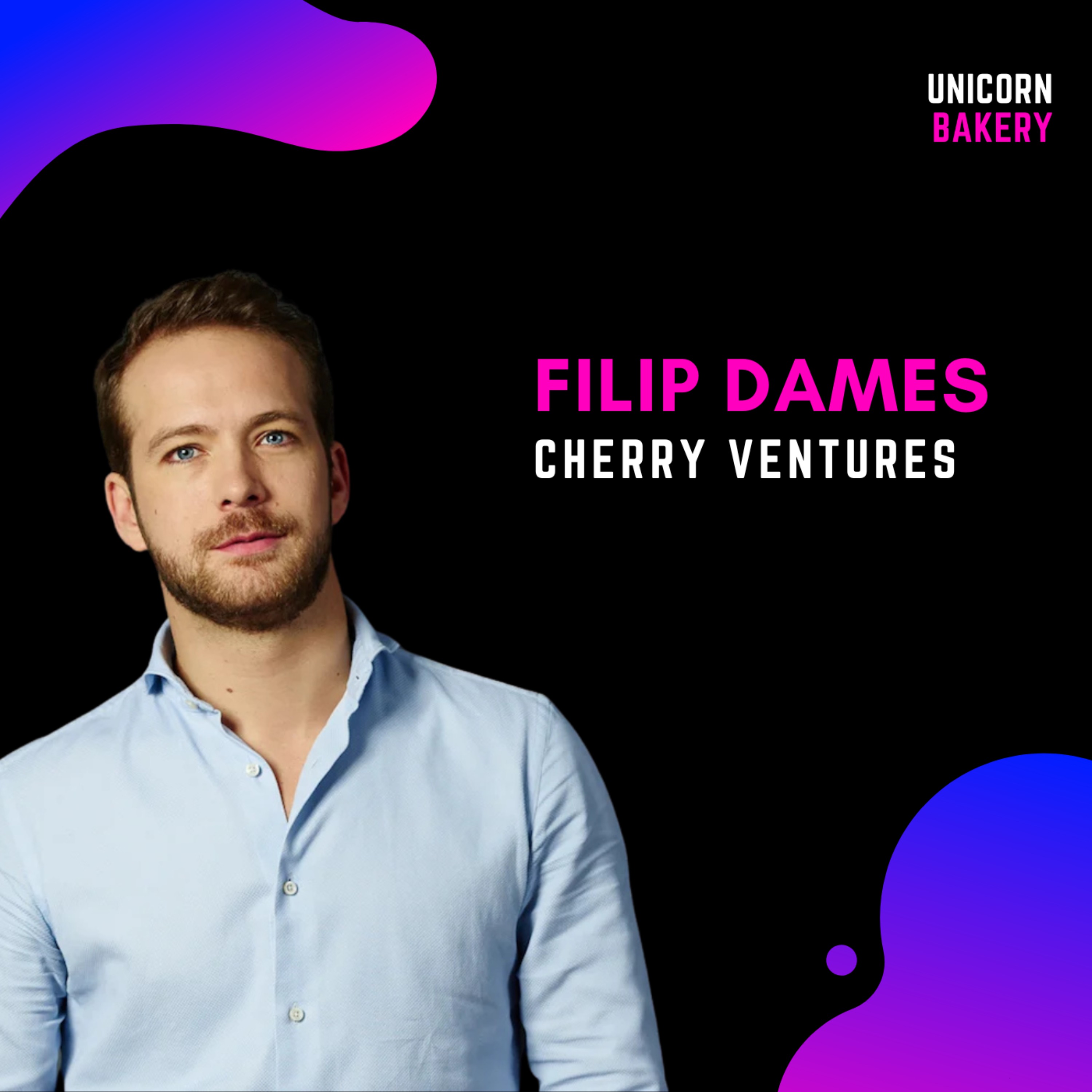Building a €20 Billion Banking-as-a-Service Platform – Insights from Swan’s CEO Nicolas Benady
In this episode of Unicorn Bakery, Nicolas Benady, co-founder and CEO of Swan, shares the journey of building one of Europe’s leading Banking-as-a-Service (BaaS) platforms. Nicolas takes us behind the scenes of how Swan started in 2019, spent two years building its infrastructure, and has now grown to process over €20 billion in payments annually.
Nicolas discusses the challenges of creating a BaaS platform from scratch, the importance of conviction and timing, and how Swan is helping companies embed banking services, such as accounts, cards, and payments, into their own products. He also shares insights into fundraising, team building, and expanding into new markets, such as Germany, Spain, and the Netherlands.
What you’ll learn in this episode:
The Journey of Building Swan:
-
How Nicolas leveraged 13 years of fintech experience to identify the need for a better BaaS platform
-
Why conviction and a clear vision were critical during the two years it took to build Swan’s infrastructure and obtain its e-money license
Fundraising and Growth:
-
How Swan raised over €100 million, including a €42 million Series B extension, to scale its operations
-
Lessons from fundraising, including why the first round was the hardest and how traction and reputation made later rounds easier
Product and Market Fit:
-
Why Swan focuses on small and medium businesses (SMBs) and how it partners with accounting and expense management software to deliver seamless banking services
-
The importance of building a product that’s easy for developers to integrate, inspired by the simplicity of platforms like Stripe
International Expansion:
-
How Swan approached launching in new markets like Germany, Spain, and the Netherlands
-
The challenges of adapting to different regulatory environments and market dynamics while maintaining a centralized team in Paris
Leadership and Team Building:
-
How Nicolas built trust with his co-founders and scaled the team to over 300 employees
-
The importance of hiring for both skills and cultural fit, and why Nicolas brought on a deputy CEO to help scale the company
ALLES ZU UNICORN BAKERY:
Mehr zu Nicolas Benady:
LinkedIn: https://www.linkedin.com/in/nicolasbenady
Website: https://www.swan.io/
Join our Founder Tactics Newsletter:
2x die Woche bekommst du die Taktiken der besten Gründer der Welt direkt ins Postfach:
https://www.tactics.unicornbakery.de/
Chapters:
(00:00:00) What was the first time seeing traction since 2019?
(00:04:26) How is Nicolas validating ideas?
(00:08:48) Defining the exact problem before SWAN
(00:12:16) Finding Co-Founders first vs. validating the idea first
(00:18:19) Red flags in hiring interviews
(00:30:12) Nicolas' framework for making decisions
(00:34:41) Biggest failures in hiring
(00:42:59) Numbers you need to know about SWAN
(00:47:46) Use-Cases of SWAN
(00:51:36) How to pick the first partner
(00:58:43) Did Nicolas' self-confidence change through the years?
(01:01:26) The right time to bring on a COO
(01:05:36) Doubts and clarity about former hired employees
(01:16:06) Country-specific functions vs. central functions when expanding
Fabian Tausch:
[0:00] Swan raised a total of 100 million euros in funding to build e-money accounts.
Nicolas Benady:
[0:05] We released our system. We had many, many, many crypto companies that wanted to work with us because they couldn't find the banking system that allowed them to start their business.
Fabian Tausch:
[0:17] For example, you have an accounting software and you get issued a card so that each receipt that you're uploading can be matched with your payments. It doesn't have to be that the accounting software is the provider of the cards. In this case, that's what Swan is offering.
Nicolas Benady:
[0:32] I'm not a very self-confident guy, but for this venture, for this company, I knew that was exactly what Europe needs.
Fabian Tausch:
[0:40] And today we're diving deeper into building a fintech with Nicola Benadi.
Nicolas Benady:
[0:46] Yeah, for me, the hardest time was probably two years ago when I realized that I...
Fabian Tausch:
[0:51] Nikola is a serial entrepreneur, did several companies, did 13 years of fintech before he started Swan.
Nicolas Benady:
[0:58] You feel when you have such a place, such a moat on the market that nobody can text you or sit.
Fabian Tausch:
[1:04] We're diving into finding his co-founders.
Nicolas Benady:
[1:07] But when we started Swan, that's where I realized that, wow, it was not only a good project manager, but also like really a good leader that people followed him.
Fabian Tausch:
[1:18] Equity split, but also a little bit in fundraising.
Nicolas Benady:
[1:21] I'm not thinking about investors or money at all. I don't build startups to make money myself first and not to get interest from investors. It's not that I don't care. It's just that I like big things. Small is beautiful. It's not really something I like.
Fabian Tausch:
[1:36] Growing internationally into different markets and then a bit of personal reflection on leadership and more topics. It's a very hard industry. It takes a long time to build a product, but Swan raised 42 million euros recently in a series B extension, which means they're currently growing at a good speed in different markets. And it's a very interesting time to listen to co-founder and CEO, Nicola Benadi. You're listening to the Unicorn Bakery. My name is Fabian Tausch. Enjoy this episode with Swan founder, Nicola. Nicola, welcome to Unicorn Bakery. Thank you.
Nicolas Benady:
[2:11] Thank you for hosting me.
Fabian Tausch:
[2:13] You are building fintech, embedded finance, infrastructure. And when I think about that, I think about very complex, very heavy investments in the beginning and a long time that I'm building and trying to figure out, is my product valid already? Can I sell it already? Are we building towards the right direction? and the need for a lot of conviction of what I'm building until I have the feeling of, hey, this works and we made the right choices. What would you say was the first time since starting SWAN in 2019 that you felt, hey, we've built towards the right direction. We're now seeing the traction that we hoped for or wished for or planned for because you're planning, but planning and then reality can be different as most of the startup founders know when was that moment day
Nicolas Benady:
[3:10] One so i don't want to even before i can't explain exactly why this is not the first startup i've built and i haven't felt that for for the other ones the other ones were also, successful in their way but i was incredibly confident for swan day one because i knew that there was a market because I'm a fintech guy and I knew that there was a market for what we were building because there were already some competitors on the market and they were successful with, I think, products that could be better and i knew how to make a better product so i felt extremely confident that if we built what we've built it would be a success and again the one and i'm not a very self-confident guy usually most of the time and you can ask my team or people who work with me but for this venture for this company i knew that we that we were that what we were building.
Nicolas Benady:
[4:14] Was exactly what Europe needs. And we needed this conviction. It was absolutely necessary because, yes, you're right, building banking as a service platform takes a lot of time. It took two years for us to build the tech, to get a new money license, so it's a kind of light banking license, to build a team, to raise some money, everything.
Nicolas Benady:
[4:41] And and so yes during two years you you can't show your product to your future clients but since i was not the first time entrepreneur people knew that i was working on on that in uh at least in paris and so we it was quite easy for me and for my team to talk to potential partners and so So my conviction that I had day one was shared by the potential clients that we met. And so, yeah, I never doubted that what we were doing was the good thing.
Fabian Tausch:
[5:15] So to give
Nicolas Benady:
[5:17] A bit of.
Fabian Tausch:
[5:17] Perspective, you said two years until you got the license. How long did it take until you made your first euro in revenue?
Nicolas Benady:
[5:26] I can tell you exactly. So we started the 2nd of January 2019. And so I remember we made the first payment with a SWAN card. It was Christmas 21. So exactly two years after. But it's not because you have a live product that you make some revenue, of course. And we started to make some revenue. We sent our first invoice three months after. It was April 21. So it was in the middle of the tech bubble. And this is also a time where we raised our Series A round, which in fact shouldn't have been a Series A, but more a seed round. But it was 21, so everything that happened in 21 stayed in 21.
Fabian Tausch:
[6:10] So talking about conviction and ideas and your expertise in fintech, because you were coming from the industry, how were you synthesizing and deciding on what to build next? What was the process of there are many ideas i'm very sure that the problem that you were identifying that became swan is not the only problem that you were identifying in the industry so what made you go for this one why what what
Nicolas Benady:
[6:40] Is a good.
Fabian Tausch:
[6:41] Idea to you
Nicolas Benady:
[6:43] That's a good question that's a good question because i know that many entrepreneurs have tons of ideas that's not my case so it's like so swan was my fourth companies and i think that i really played with maybe seven or eight ideas in my life so not that much not like every every year i have a new idea that's not how it works for me at least and again it's all the time for me it's strong conviction it all starts with a for me again with understanding a problem seeing a problem seeing that something doesn't work the way it works the way it should work and then the problem must be big enough to to launch a company sometimes it's a small issue or it's the total addressable market is not big enough and then you want to fix it you maybe you want to to launch it but rather early at least in my mind okay let's not do let's not do this do.
Fabian Tausch:
[7:46] You say big enough to become a venture case so that investors will give you money so are you thinking all ideas that way or when is it big enough when you're not thinking about
Nicolas Benady:
[7:54] Investors i'm not thinking about investors or money at all I don't build startup for not to make money myself first at all and not to get interest from investors. It's not that I don't care. It's just that I like big things. Small is beautiful. It's not really something I like. So, yeah, when you're building a startup is amazing. Emotionally super hard. It will take a big part of your energy and your life. So, well, if you do that, let's try to fix big things and not small things. That's it. Yeah, it's only because I'm an engineer at heart and I like to fix the biggest problem I can fix myself. Maybe building a banking as a service platform is not the biggest thing that humanity needs today. But in my industry, this was something important.
Fabian Tausch:
[8:50] So we had the problem, the big total addressable market. What are other factors that are important for the idea?
Nicolas Benady:
[8:59] And so this is for me again. For me, I need to bring something new. This is how I see things. This is where I'm good at. Like, okay, if we see this problem, but if we look at it with another point of view, then maybe we can have an edge and bring something to the market. But I wouldn't build exactly the same thing that someone else already did before. Sometimes the edge is not that big. I don't know if you look at Google, for instance, when they launched Google, well, it was just a search engine. The biggest edge was simplicity of usage. And that was a big enough edge to launch Google. It was super fast, super sleek, and just a blank page with Google in your search. That was enough to launch it. So Swan, we had this age, these different ways of seeing the product, the market that interested all of our future clients. And this is why we launched it.
Fabian Tausch:
[10:04] So tell me a bit about the exact problem that you defined before you started going for Swan.
Nicolas Benady:
[10:13] Okay. So when we started Swan... So what problem do we solve as one? When we started to play with the idea in 2018, there were already Revolut and 26, this kind of company. So this kind of neobanks that had been launched with people who were not from the banking ecosystem. And so every developers, every product people understood that, wow you don't have to be uh to come from a legacy bank to be able to uh to to distribute some uh some banking services you can uh so who are these guys how did they do that and so many people were asking themselves how can i do that myself how can i offer accounts cards i-bands this kind of services. So I felt that this was in the air. And so there were some platforms, some banking and the service platforms that allowed these creative people to get these services. So platform that allowed developers to create accounts with cards, cards with their own logo, you know, MasterCard cards, Visa cards, and iPads. But these platforms were not easy to use. and so if you wanted to use them so if you were a developer you had to talk to a salesperson.
Nicolas Benady:
[11:42] It would take like probably you had to talk then to mastercard you had to talk to the regulator bon the front sorry to get into technical details about how we work but it was really hard to uh to to start to to work with these platforms and my point of view was well if i'm a merchant if i want to install stripe it takes me five minutes maybe a little bit more but it's super easy so i'm a merchant i can have a payment page.
Nicolas Benady:
[12:06] With a stripe in five minutes so if i'm a developer it should be the same with issuing cards i should be able to not understand how it works behind the scene not understand the regulation mastercard every technical details that's behind but i want to go on a on a sandbox i want to see a documentation i want to start to play with it and if i have a good fintech idea in the middle of the night i can start to work on our on this sandbox and in the morning go and and pay with a self-issued card and buy myself a croissant to start the day so that was really what we had in mind and i don't want to talk to mastercard i don't want to talk to the regulator i want to be safe i don't want to take any risk i just want to create a card with my logo and that's it so this is what really sparkled the idea of swan and i knew how to do that to do that safely for us for swan for the developer for the end clients for for everyone and so this is because i knew how to do that that we decided to launch swan what.
Fabian Tausch:
[13:13] Happened then you said you're an engineer
Nicolas Benady:
[13:15] By heart did you search for co-founders.
Fabian Tausch:
[13:19] First or did you try to validate the idea first or were you in your head like i already know that it's there i don't need to validate
Nicolas Benady:
[13:28] It i didn't have to validate it again i knew that it was i know that's really not the right playbook to launch a company what i'm doing and that's not what i did with my previous startup but this one was so obvious for me that i didn't take time to validate anything.
Fabian Tausch:
[13:46] How many years of experience in banking and fintech and everything went into this gut feeling
Nicolas Benady:
[13:52] 13 years so i started my career in 2000 in a startup but i started my uh my career in fintech in 2006 building a first venture so So, yeah, 13 years of experience. I've worked at Visa. I've worked in fintech. Even if the word fintech wasn't coined at the moment. So, again, I knew what people were looking after.
Fabian Tausch:
[14:20] So, how were you approaching who to build with?
Nicolas Benady:
[14:24] Okay. And that's, you know, for me, that's like a music band. When you create a startup, there was one guy I knew I wanted to create a company. With him because he was amazing it was the third time we worked together so this guy is Nicolas Saison he was my apprentice when I was when I was 29 he was 18 so he was a engineer but doing doing his study and working at the same time and we worked three years together in the first company then I pulled him out from this company to my second venture and then 15 years after well I knew that this guy was the guy who wanted to build a startup. And actually, you know, most of the time you need different minds and everything. And that's not what I feel with this guy. We are not the same, but we are quite similar in our way of thinking. But we're a great working couple. And so I know exactly how he feels. I know exactly how he thinks. I know where he's good at. I know he knows where I'm good at. And we don't have to talk to each other that much. And we can fight a lot. And when we fight, that's okay because we're safe.
Nicolas Benady:
[15:39] And so starting the company with him was a no-brainer for me. But we needed a third co-founder. so we we we looked for a cto both of us were engineers and developers at the beginning but we were not that much into a development and we really wanted to have a cto in the team at the beginning when.
Fabian Tausch:
[15:59] You looked at your co-founder and you can determine both of them were you looking for skill level or trust level if you have to choose like if you have to have like the 51 49 like which which of those two is like 51 at least
Nicolas Benady:
[16:17] That's a good question i never asked myself for me trust is so obvious that yeah so trust is of course the most important but this is something you easily find most of you can trust most of the people skill is different, And the two co-founders I had were insanely skilled. So Nicolas Saison is probably one of the most impressive product guys I know. And Mathieu Breton was a great, great developer as well. And still a great developer. Trust was obvious with Nicolas because we had worked together for 15 years. And I fully recognized how important it was to start this company with this guy because it was not only trust it was also fun, when you go to work and you know that you will laugh a lot in the day, you know that if you have some trouble, if you have some issue well yeah, this is trust you can talk about it with your co-founder it changes a lot and I wouldn't have, started the company without him with.
Fabian Tausch:
[17:28] The co-founder that you were searching did you already know him for a while or did you newly meet him
Nicolas Benady:
[17:34] Yeah we newly met met him how.
Fabian Tausch:
[17:37] Were you building the trust that was needed because trust is obvious that it's a part of it throughout the process
Nicolas Benady:
[17:45] That's a good question i we we spent a lot of time hanging out together before starting the company yeah it's like an interview process you ask some questions you must have the right feeling about it so we interviewed many many candidates, And ultimately, we felt super good with Mathieu. And we knew that technically speaking, it was super good. But yeah, the only discussions we had with him was not about how to build code or everything. It was really about how we felt together.
Fabian Tausch:
[18:20] What were things in other conversations with other potential co-founders that you're interviewing that made you say, no, this person is not the right one?
Nicolas Benady:
[18:29] That's a good question. exactly like what i what i do with with candidates you must try to understand what drive someone for instance i have a strong value which is long term and if i understand that the people i'm talking to many people want to be co-founders or entrepreneurs because you can make money out of it which is okay i'm totally fine with that but that's not why i'm doing it i'm doing it because I want to launch, I want to build, I want to make something. And so this is probably the first thing I try to understand what motivates people to launch a company. And I understood that with Mathieu, that was not the case. Again, I have nothing against money, but it must be a secondary reward, not a first driver.
Fabian Tausch:
[19:21] Was it always the case also with the first startup or did it change once you had money?
Nicolas Benady:
[19:26] Ah, that's a good question. I was not the CEO of my first startups. I was co-founder, but not the CEO. And what I realized was that I was in a great setup. So the first one, it was a big French e-commerce website in the year 2000 that doesn't exist anymore. It was acquired by Rakuten in 2011.
Nicolas Benady:
[19:48] But so the CEO was probably one of the most smart guys we could have in Europe to start a venture. But he wanted to make a billion francs at the time. So 150 million euros, that was his goal. He was saying it. And I realized that we had the European Amazon in the end at the time. It was really, we had the right team. It was the right moment. We had everything to build at. But we built a nice website acquired by Rakuten. And, well, he made a lot of money. And that's good. People were, he created a lot of value and everything.
Nicolas Benady:
[20:30] And that was the case also with my second startup. I could see my co-founder, so the CEO of my second startup, Limo Netic, who was a payment company this time. I could see as well that his first drive, his first motivation was, so it was to build something but also to make money to sell the company after five years let's say and i saw firsthand that when you have that in mind you don't build a great company you build a good company you build you make some you add some value to the world but yeah you don't build a stripe you don't build a apple or you don't build this kind of company and so that's why i'm talking maybe so much about it because yeah it was in a way it was a little bit disappointing and so.
Nicolas Benady:
[21:18] That's not what i wanted to do with one but going back maybe to that wasn't of course this is not the only thing i checked with uh with my co-founder so i checked yeah what what was his drivers what exactly the same question that with uh with people uh you want in your team how do you behave when you're in conflict with others and all of these kind of questions. And at the end of the day, because we really spent a lot of time with him before, starting the venture, well, are you happy to spend the whole night discussing, with him? Do you spend a good time or not? You must be happy to spend a night with your co-founders. If not, really, you shouldn't start the company.
Fabian Tausch:
[22:03] Thank you for sharing. How did you split equity? Ah.
Nicolas Benady:
[22:08] I read some stuff about it, like when the equity is split equally between co-founders, that's not the best setup and everything. I'm not sure that there is maybe some study about that. So what we did this time, we split equally with Nicolas Saison because, well, we came with the idea and with the experience and we know what to be. And the third co-founder had less experience than us. So he got two-thirds of what we got. He was happy with that. And I think it was a fair deal. And this is how we did. We didn't spend a lot of time thinking about it. But still today, I'm super happy to have an equal share with Nicolas Saison, even if I'm the CEO, because it avoids many stupid discussions, you know.
Fabian Tausch:
[22:55] Did you have the discussion of who's doing the ultimate decision if there's a Paris situation?
Nicolas Benady:
[23:02] It was quite obvious with the setup. Because again, we knew each other quite well. and we knew who was the right person for many things. And we didn't have to speak that much about it. It was obvious that it would be me for most of the decisions, but not for product decisions or for tech decisions. But for business decisions, I don't know. Do we raise some money with an investor? Do we spend money on marketing? Do we want to accept this kind of clients because we take some risk in terms of compliance? so it was this was more up to me and the two other were more the product and tech side i.
Fabian Tausch:
[23:41] Want to double click on nicolas becoming co-founder because you said he was your apprentice and over 10 15 years earned his right in becoming a co-founder but what happened through these 15 years working with him that made you think hey he's the right person that i want to have on board what are the things that he brought to the table besides the product experience expertise well after one
Nicolas Benady:
[24:08] Week of working with him when he was 18 i knew that this guy was amazing so he was incredibly smart super hard worker and very funny which was something quite important then i also recognized that he had a kind of charisma even if he was only 18 at the time i remember he was a i don't I don't know how to say that in English, a scout leader, you know, he spent three weeks during his summer managing young people, young scouts who were 13, 14 years old and spending three weeks with them, bringing them to...
Nicolas Benady:
[24:46] This is an amazing guy. I mean, when you're 18, being able to be generous enough to spend three weeks of your vacation, to spend your time with kids of 13 and 14 year old, which is not what you want to do when you're naturally 18. And when you can do it, it's an incredibly important management lesson that you learn when you're only 18. So this guy has, even if he was super young, he had many, many qualities. But well he was a developer he was a good developer in the team and that's it but i loved him and so in the next company i realized that he was also very good at managing projects well i was i was impressed by what he achieved and i had still a lot of fun with him not only fun when we work together it was always you know you start an idea and you can feel that this guy finished what you were saying because he got the idea and he made it better and then you talk again and well it works really well like a working couple but when we started swans that's where i realized that wow it was not only a good project manager but also like really a good leader that people followed him and not a team of three or four but a team of 100 people would follow follow him because yeah I think he's an amazing guy, I admire him still today.
Fabian Tausch:
[26:15] Why do you think he followed you for 15 years before you then became co-founders?
Nicolas Benady:
[26:22] I know. Because in a way, he's way stronger than me in many things. But I like what he told me. Most of the time, you're right. What you say is right. You know where to go. You know the right direction. Not the details and everything, but you know what we should do. And most of the time, you see things before others. Or you have an interesting point of view that makes me see things that I can't see. So I really like this quality that I have. And again, at the end of the day, we like to work together. We like to play with ideas together. That's what people like as well.
Fabian Tausch:
[27:05] What are your biggest lessons on managing people to give them direction so that they can also grow with you? Because if he would have had a feeling of hitting a ceiling and there's no chance to grow beyond, he probably would not have stayed.
Nicolas Benady:
[27:19] Yeah, of course. Well, I'm not a micromanager at all. That's not what I am. Naturally, I like to see smart people. I admire people a lot. And quite soon, I can recognize talents sometimes when they're young, sometimes when they're not young. But once I recognize talent, And I can see, wow, these people are so much smarter than me at, I don't know, IT. So much smarter than me at selling a product or so much smarter in finance. And I can feel that quite soon. And so, again, I told you that I was not a very self-confident CEO. And in a way, that helped me to make a lot of room for other people to take care. To take enough uh enough place so sometimes not because i don't trust them enough to have a big big role in the company and that's life but i think i'm good at delegating and giving people, enough enough room for developing themselves being.
Fabian Tausch:
[28:23] A person that also often trusts other people and then condenses and synthesizes opinions and thoughts and advice to form decisions. I know how hard it is to balance between this is my opinion that I might have in mind versus, hey, I need more data and information and thoughts from the outside. How are you making decisions without giving others, like where's the fine line between giving others too much room for something and not enough so that you don't like what where's the fine line where do
Nicolas Benady:
[28:59] You feel comfortable making decisions that's a good question so first yeah i don't involve myself in uh in every decision of course but even at the very beginning of the company and so i try to give my opinion in big of course in big big decisions like i don't know should we go to germany that was one of the decisions that uh, that we had to take. And of course, it's a super difficult decision because you will be never sure that it's a good decision. You never have enough data. You never have enough. And at the end of the day, at one moment, you must take the decision. You must listen to everyone. Because often, I'm convinced by everyone that I'm wrong. I love to be wrong. Because when I'm wrong, it means that I have a good team. It means that, OK, if this guy managed to convince me that this is not a good decision that means that this guy is good because i have strong convictions but so yeah my job is probably to hire good people and to make a few decisions and that's.
Fabian Tausch:
[30:06] That's it are you the kind of leader that because i i talked to a lot of founders who are like hey i have to understand the set of skills and everything that's needed to build for example product or go to market or marketing or whatever before i can hire someone and hand over or are you the kind of person saying no i don't need that i can hire an expert and i can trust this person depends
Nicolas Benady:
[30:35] So in a i've been a developer so i can recognize a good cto i've been in product so I can recognize a good CPO. I understood quite naturally how marketing ourselves work. Even if I learned so many things, that's one that I didn't understand about go-to-market.
Nicolas Benady:
[31:01] But I must admit that I haven't been good at the beginning for what I call scale functions like finance and HR. I thought that, well, that's okay. That shouldn't be difficult. That's way more difficult than what i thought at the beginning and i did some mishire for that for for these roles and so i had to see how these functions worked before hiring the right persons uh eventually so and i'm not an analytic guy so i'm definitely not the guy who will understand exactly what for instance a chief people officer should do exactly the list of things that you should do before hiring him or her so but so that's totally okay when you're a company of less than 100 people but when you become bigger this was something i liked and that's why we also now have deputy co that's one or coo if you want that really helps us to scale and to be a little bit more into the numbers, into the, analytic part of scaling the company. That is absolutely necessary. And I'm not this guy.
Fabian Tausch:
[32:18] We will get back to that point, definitely. I will double-click on that a bit later because... One more thought, because you said you made some mishires. What were the things that you changed in your approach to hiring throughout the years? Because you realized, hey, I made X, Y, and Z, and I realized this led to mishires, for example, compared to today.
Nicolas Benady:
[32:43] First people we hired, the process was really intuitive, and that's not good.
Fabian Tausch:
[32:49] First one or for the first company?
Nicolas Benady:
[32:50] The first companies and even the first ones, that's when the company I've built before, so the first were small companies. I mean, the two have been acquired when there were less than 30 people in the company. So not the very first one, the e-commerce website, but I was a tiny co-founder. I was not the real co-founder. But the two other ones, I mean, when you're less than 30 people, it's not the same thing that when you're 300 people. You know everyone, you know, it's not the same. And so the processes we had at the time were, yeah, more, I'm not super proud of what we did at the time. So we did two or three interviews asking maybe sometimes the same question to the people and then hire the people if we like them. And that's not how to do. But, you know, so many things have been written since. There were no playbook for building startups 15 years or 20 years ago. So it was hard to know exactly how to do the right things.
Nicolas Benady:
[33:48] And so, well, yeah, now we have people in the talent acquisition team that helped us to structure correctly how to hire the right talents and everything. And with a scorecard, with different people trying to assess the same qualities and everything. And at the end of the day, that's the right thing to do because you spot some blind spot that you can't see yourself and then your friends, your colleagues see things that you don't see. And sometimes you see something that they don't see, sometimes good things that they don't see. But when it comes to sea level, it's also, well, now we need the board approval for hiring sea levels and it helps because they also have a good experience of things that we don't see, you know, the people we have at the board are good at seeing the company.
Nicolas Benady:
[34:43] With you know products we know what to do but finance people every company face the same issues when you're 300 you same for finance you can compare companies just with their with a balance sheet you can understand how a company works just with numbers that's a way of seeing a company that's not the only ways but finance is a is a good is a point of view of comparing companies So board members are extremely good, in my opinion, for helping us to hire the right people to scale the company, like finance people or HR people.
Fabian Tausch:
[35:22] One thing that I want to understand as well is why were you thinking about bringing on investors?
Nicolas Benady:
[35:27] That's easy because what we do, you can't do it without investors. There's such a massive investment before going live that it's not doable without investors. I mean, we built the infrastructure of a bank almost. So it's like you want to build a tunnel under the channel. You can't bootstrap this kind of company. You must invest millions or billions of euros for the tunnel under the channel. And you will make money out of it 10 years after. That's normal. And so for us, it's not 10 years after. but we needed 20 million to launch to launch one we couldn't have done it without this first investment absolutely impossible you.
Fabian Tausch:
[36:20] Raised 100 million by now in total recently was a 42 million euro series b plus extension What are your biggest learnings on fundraising?
Nicolas Benady:
[36:31] That's not the most interesting part of building a company. For me, it's like, you know, if you're asking to the best restaurant in town, hey, what did you learn about getting a credit to open your restaurant?
Nicolas Benady:
[36:44] The chief doesn't recur. He has to do it. He must do it. That's something necessary. You can't open your restaurant without an investment. But that's not what you think about at night. At night, you're just thinking about what the best food I can do. And that's what I'm thinking about so okay when it's time to fundraise I'm focused on fundraising this is important, I'm the CEO of the company but actually I give my existing investors they tell me what to do on that I trust them because we're aligned and they know when to raise they know with who we should raise and since our interests are aligned because they don't want to dilute too much the too much dilution that's okay we we find uh it has never been sorry the first round were very difficult the other the other rounds were supernatural so the first round the first very first round was very difficult because investors didn't understand what we what we what we wanted to build it was quite complicated to explain the the age i was talking about at the beginning so what would make us different and why i was so excited about the product but apart from this seed round that was difficult the rest was super natural because.
Fabian Tausch:
[38:04] You were showing that you can build and already had to trust in the
Nicolas Benady:
[38:08] Industry that you can use or why series a series b and series b extension so series a we had what was needed in 20 was in 21 to raise money we had a good team and we had we had a platform that product that work and traction from can.
Fabian Tausch:
[38:26] You share how much revenue were you were at doing
Nicolas Benady:
[38:29] Absolutely stupid when we raised our series a again it was in 21 you know we had like 30 000 k of monthly revenue so 300 million euros of annualized revenue which was really, really low to raise. The 16 million euros we raised at the time, it was the easiest round we did. Again, it was 2021. And I think the investors were right to invest in Swan because the valuation was okay compared to what it is today. And Series B and Series B extensions, it's all about numbers. It's all about your revenue, your reputation on the market. are your clients happy with what you build and is there a potential to make more and that's it, And I expect Series C and Series D, because we will raise again, will be the same.
Fabian Tausch:
[39:25] To get a bit of an understanding where you're standing at today, I'm quite sure you're not comfortable sharing actual revenue numbers at the moment.
Nicolas Benady:
[39:33] Yeah, I'm not.
Fabian Tausch:
[39:34] But are there other numbers, like, for example, customers, transaction volume, and other stuff that helps?
Nicolas Benady:
[39:40] Yeah, of course. And actually, I realized that we haven't talked about what we were doing as one. Briefly, I'm going to pitch what we do so people understand the numbers. I will talk about. So at Swann, we are building a banking as a service platform. So what does it mean? It means we can say differently. We build a new bank like Revolut, like N26, like Conto, like this kind of company. The only thing is to open a Swann account, you won't download the Swann app. We are white label. We are behind the scenes. So other companies can create, can serve to their own clients, bank accounts with iBands, with MasterCard cards, so MasterCard cards with their own logo. So sorry, it's not bank accounts, it's e-money accounts. I have two, this is important. We don't have a banking license, we have an e-money license, but like Conto again, like this kind of company. And it doesn't change a lot for the end client.
Nicolas Benady:
[40:40] So a little bit like when you go to the supermarket and when you buy butter with the brand of the supermarket. I'm sure sometimes you do that. You know that it's not the supermarket who does the butter, right? And so we do the same. The only exception is we don't make butter. We make banking services. So others can distribute them and embed them into their own software, into their own product. So, for instance, you're an accounting software and you can distribute to your own clients software where you can pay your invoices, where you can distribute cards and everything. So, again, we do a little bit like Revolut and Conto. And so, in terms of where we are today, in terms of volume, so we are more relevant for small and medium businesses. we open accounts to SMBs most of the time not only but most of the time, And we have 150 partners who use our service to distribute banking services to their own clients. We have 80,000 accounts. And we make 20 billion euros of payment every year.
Nicolas Benady:
[41:52] And most of them are transfers, SEPA payments, and 1 billion euros every year of card payments. So we issue cards with the logo of our partners. And so in terms of numbers, this is where we are. We grew 100% in 24 and we should grow a little bit less this year, but still with a very nice growth.
Fabian Tausch:
[42:14] How hard was it to find the first partner or customer?
Nicolas Benady:
[42:19] Again, with this startup, this was not the issue. We had, and actually, this is something quite strange with our industry. If you launch a new if you create a new bank you will have people waiting for you to open an account to them for good reason because the other banks don't want to work with them because well we are in a special industry where you can't open accounts to everyone or you shouldn't open accounts to everyone and so before even just because there was a buzz about what we were creating at least in Paris, we had I don't know like maybe one request a week to to to open our services and so our goal was just to to find the right customers to start to work with again we were super lucky with that we had we had a lot of traction even before launching the product which is we were super lucky again totally realized that we had some luck about that time to market is so important i built other companies before that were super good ideas but they were too early for instance the one i built in 2007 it would have been a success in 2015 question.
Fabian Tausch:
[43:35] For everyone who wants to understand a bit deeper like because sometimes i think it's easy to understand what you're doing but understanding what are the most common and best use cases like who are the companies that you like serving and they need your product where you're like, hey, that's a perfect use case.
Nicolas Benady:
[43:57] Okay, I can talk to you about the best use case we have. Ah, small and medium businesses. Well, let's talk about banks, retail banking. So you as an individual, you have a bank account, and I'm sure you also have, with your company, you have another bank account. I believe that today, legacy banks offer good services to individuals and to big enterprises. You won't see, I don't know, Mercedes opening a Revolut account. And even maybe your parents won't open a Revolut account either because they're quite satisfied with their banks. But that's not the case with small and medium businesses. SMBs are not happy with their bank. And why? Just because for SMBs, merging banking and accounting is a killer combo, but really changes the lives of small and medium businesses. They don't have time. They don't have enough people in finance team to, I don't know, when you have an invoice to pay, to copy-paste, an IBAN in bank system and everything. So all of this should be integrated. And that's why Revolut Business has so much traction. That's why Conto has so much traction, at least in some part of Europe.
Nicolas Benady:
[45:17] And so where we are the most relevant, it's when accounting software, or what we call pre-accounting software. So every tool is for finance. It can be invoice management softwares.
Nicolas Benady:
[45:32] It can be expense management softwares. It can be accounting softwares. All of these softwares for SMBs, they need to integrate banking services. Let me give you an example. If you're an app that allows you to take a picture of when you go to the restaurant of the receipt, extract the VAT, and send it to your accounting system, it's so much easier to distribute a card at the same time. So you pay with your card and bing, you have a notification. So it sounds obvious to you now because this is how it works, but that's not how it worked five years ago. Five years ago, this is not how most of people worked with their banking stack in a way and accounting stack in another way. They had two systems, bank account on one part.
Nicolas Benady:
[46:20] And an accounting system on another part. For SMBs, merging both is super important. And so we're super relevant for accounting softwares. And this is where we have the most success. And with us, for instance, Penny Lane, which is our B. So Penny Lane is a French accounting startup. It's a unicorn. It's a massive company. So Penny Lane plus one, we have a better product than, let's say, Revolut Business. But us without Penny Lane we don't do anything and Penny Lane without one something lacks in the product so it's really a little bit like Sierra Evolute as an iPhone and we see ourselves as Android we need other software to distribute our.
Fabian Tausch:
[47:05] Product fair point so you said you had enough inbound in the beginning and then at the same time you need to decide who's the best partner to start with and you need to manage growth because it's probably something once you can roll out because you get the e-money license and other stuff, you're still, yeah, you need to roll out the first time, the second time, get to learn and understand what's happening. So how did you pick the first partner?
Nicolas Benady:
[47:33] Because I've been in the industry for quite some time, I know that first, the first thing we had to manage was risk. Especially in 21, when we released our system, We had many, many, many crypto companies that wanted to work with us because they couldn't find the payment rails, the banking system that allowed them to start their business. And we didn't want to do it because in terms of anti-money laundering, which is something that is very important for a bank, it was not a good idea. We were not mature enough to serve them. So that's why we decided to focus ourselves on non-risky business, on vanilla business. Okay, what is the end client? If the end client is, let's say, a restaurant or a bakery that just wants to open a bank account to pay some flour or to some butter to make some bread, that's fine. This is something we understand. This is something we can work with. So the first thing, and again, it's totally relevant for our industry.
Nicolas Benady:
[48:38] When you launch a new regulated fintech, You should focus first on vanilla clients before starting to work with other companies. So this is the first thing, managing risk. And the second thing is, of course, if you want to make a good product, you need good clients as well. And so we were lucky enough to find the good startups who helped us to build our product because we desperately needed some feedback.
Nicolas Benady:
[49:06] We were super proud of what we built but the platform we launched in 21 it's not of course it's not the same at all than the one we have today.
Nicolas Benady:
[49:14] So they were like us product people tech people that we trusted that we we recognize their talents and who were eager to work to work with us and to make our product better understanding.
Fabian Tausch:
[49:26] That the first two years with regulation and building the product for the like the platform for the first time was like a super intense time what became the main challenge after you launched the platform was it still product was it still regulation became did it become go-to-market at some point what was what was the biggest challenge then
Nicolas Benady:
[49:49] Well everything the first two years so it was two years and a half i would say were easy okay you have some pressure because you're not live because you're burning money and everything but you don't have clients so when you don't have clients you don't have problems and well you don't have any your prior revenue so you don't need grows because you're poor revenue so life was easy at the time uh no of course when you're live then that's when uh that's when the real adventure starts and so everything is difficult having good product is difficult having more clients is difficult scaling the team is difficult yeah everything is difficult i mean building a company is uh is hard it's harder than what you think when you start it's a great experience as well it's big it's a super nice adventure but i so maybe the only luck we had with uh with uh with swan was yeah this natural traction that we got from the market apart from that the rest was not super maybe the other luck we had was the atmosphere was the culture we had with uh because again i think the co-founders we loved each other, and so we were super happy to go to work there was like very good atmosphere, not only of fun but also of excellence and everything so the first three and a half years nobody left the company.
Nicolas Benady:
[51:17] Nobody, we had to let some people go but nobody decided to, leave the company because of this atmosphere so I think that was the two easy things at the beginning at least commercial traction was we had this for us and then the culture that was very very good naturally the rest we struggled like uh like every company how.
Fabian Tausch:
[51:40] Are you making sure that you're growing as fast as the company does personally
Nicolas Benady:
[51:44] Huh this is hard, I told you that I was not the most self-confident CEO you can find, but I know it. And I know that it has some pros. It is a strength in a way as well. Again, because I can recognize the talents of others. But yeah, you need to put yourself in question all the time. And having a board, having investors can be good for that as well. Because sometimes they show you you're not in the good direction. You're not good enough for that. And so each time I realized that I was not good enough at doing something, this is when it was the best time to hire other people to help me do what I can do. And really try to focus myself on, okay, where am I strong at? If I was able to build this, that means that I'm strong at something. Let's not try to become better at my weakness let's hire other people to uh to to fix that and let's focus on where i'm good at but when you don't have the right people wow uh that's a that's a you you have a hard time but now i think that's okay we have the right team uh around me and and i do exactly what i'm good at first.
Fabian Tausch:
[53:06] Question do you think you're more self-confident now than you were six years ago when you started yeah
Nicolas Benady:
[53:13] In a way of course when you succeed to again i already built some some nice companies but confidence comes with uh with uh i don't want to say success because i don't think one is successful we're not profitable yet we're not i don't think we have, you know we have a done um we're not there yet but at least we've done something we make a lot of revenue, our product is recognized on the market. So of course confidence comes with success in a way. So when you manage to do something.
Nicolas Benady:
[53:47] When you can't ride a bike and when the first time, wow, I can ride it, of course you become self-confident and then you ride the bike and you don't think about it anymore. And then when you think about it, you say, yeah, I can ride a bike. So that's the same for me. Yeah, I can run a startup. So it comes from that. But yeah, the difference is with a bike, the road doesn't change all the time. And with a startup, the roads change all the time and especially when you scale. So it's not the same job from launching a company with three co-founders to running a company with 30 people, who is already quite a challenge. And then to run a company of 300 people, that's not the same challenge. You have to change your role, to change what you do, and to let others tell you that you don't do the right things sometimes. You must leave this room for feedback, which is very, very important. You must be open to it. I hope I am. I think I am and that's it I also recognize that because you're the founder you don't have a choice because.
Nicolas Benady:
[54:52] It's very hard I think for a company to change the CEO of a company the founder in the first 10 years maybe after that when the company is more established yeah why not that's really not the same job why not but at the beginning you need the vision and the energy of the founder and the culture of the founder so you don't have the choice You must scale with the company and change the way you work all the time. And with some phase, I had more trouble with some phase than that with another.
Fabian Tausch:
[55:23] You said you brought on a deputy CEO, somehow COO, depending on how you name the role. When was the right time for that?
Nicolas Benady:
[55:33] I should have done it earlier. I would say after series B, when we reached something like around 10 million euros of revenue. So this is where, when we were a little bit more than, when we approached 200 people in the company, 150, I would say. So this is where KPIs, metrics, OKRs, aligning every team so they work effectively together, Not just because they like the founders and because you meet them at the coffee.
Nicolas Benady:
[56:06] No, no, no, no, no. You need to structure correctly the company. And I'm not good at that. And I realized it. And this is where I realized that, wow, we need some people to help us, to really give the tempo and give the rhythm of the company. And it took me almost one year to find the right person and then probably six months for this person to be effective. So these 18 months were probably the hardest time at Swan for me. So it was not, you know, that's something funny when you build a startup. You think that when you're at the seed round, you think that after Series A it would be okay. And then when you're at Series A, when we'd be at 10 million AR, we will be established. Unfortunately, no. The stress is always the same. And sometimes the stress grows bigger than before. And yeah, so it depends. But yeah, for me, the hardest time was probably two years ago when I realized that I needed someone else in the company to help me.
Fabian Tausch:
[57:17] What changed since your deputy CEO is effective?
Nicolas Benady:
[57:22] So much. Many, many things changed. So we have now a good, we have the right, we follow the right KPIs. We have a good finance team. We believe our numbers. We can pilot the company with the right tools. So, yeah, I feel that we are 10x more efficient than what we were 18 months ago. That's normal. We are more mature. And same, yeah, we put something that isn't fun, but that you need when you're more than 200 people. we put some process to to run the company how.
Fabian Tausch:
[58:03] Did your role change since then i
Nicolas Benady:
[58:06] Accepted to share to be not to be the only one to talk to the company and and i think people were super happy to have another voice the company you know i'm the one who every monday morning we have a kickoff meeting of 10 to 15 minutes where we give the news of the last week and what is important for the next week and i'm still the one doing it i love it but then we also have all ends like once a month and this is the best time for the deputy ceo to talk about processes to talk about numbers to talk about kpis and everything and people need that as well and what what what has changed in terms of process and everything and so i think we have a good uh we have a good roles together we work very well together and we are we don't have the same qualities and and that's okay i have.
Fabian Tausch:
[58:55] One question in mind that is like a bit of a different topic but what you mentioned is you now have the right people around you and so what happens in your mind once the question arises if a person that you hired a year ago two years ago three months ago is still the right person
Nicolas Benady:
[59:15] That's hard especially when you're such a big team because you you listen to everyone and everyone has an opinion on everyone so you must listen what you have to listen ah you must be objective so you must set some people everybody's different so first there is a gut feeling of course now i have a strong gut feeling that we have the perfect team at least for the stage where we are today but it will change of course in one or two years you can put every process every numbers every thing at the end of the day it's gut feeling especially for me but yeah you can assess performance and you can put uh every process you want gut feeling makes it or at one moment you feel that you don't have the right person and the right role.
Fabian Tausch:
[1:00:04] Are there situations where you put process over gut feeling process
Nicolas Benady:
[1:00:09] Help you to have the right gut feeling it's not enough but sometimes yeah because you follow a process and your decision change because you realize no i'm wrong i had the good feeling that this guy was not efficient but no it's just because his task is much harder than what i thought and so this is yeah again this is why i'm super happy to have now a deputy CEO but again for the sea level gut feeling is still quite important we.
Fabian Tausch:
[1:00:39] Talked about making bold and big decisions and one question that you always have is hey we're live in in your case France we one of our first customers we have the use cases here and then the question arises are we going more in depth in the French market and just like try to scale in here or are we also opening a second country which you did germany you already mentioned it and how were you making this decision between focus on the french market and tearing the focus apart in quotation marks by opening
Nicolas Benady:
[1:01:20] Germany.
Fabian Tausch:
[1:01:22] As a second country
Nicolas Benady:
[1:01:22] So when we started swan I told you we wanted to build something big and day one again so we had some I didn't have like I didn't know exactly what would the company look like five years after or ten years after but I knew that I wanted to build a good product and I knew because this is a mistake I did in my previous company that I didn't want to focus on the French market so I didn't want to build a product that was focused on tackling the French market and I didn't want to build a product that was focused on tackling the French market. I'm super French. I've never lived abroad. My startup before were tackling the French market. And that's exactly why I didn't want to do that again.
Nicolas Benady:
[1:02:04] And so where we were eight in the company, I remember, we took a decision to de-French the company in a way by hiring someone who didn't speak French.
Nicolas Benady:
[1:02:18] He was German. He was happy to relocate to Paris. So it was quite a big challenge for him, but it changed the whole company because it switched the mindset of the company the day he arrived. You know, boom, he arrived and then everybody had to stop to write in French, to stop to talk in French in most of the meetings. We were only eight, so he was here almost all the time. And so we had to switch to English and we had to change the way we see ourselves. So day one we wanted to leverage this nice thing that we have in Europe you know again we're a special industry you can't it's not because you're a bank in France that you can serve companies sorry clients all over the world if you're a bank in Nigeria you can't You can serve clients in Nigeria. If you're a bank in the US, you can serve clients in the US. But in Europe, if you're a bank in France, you can serve people everywhere in Europe, in the European Union. And that's one of the great things of the European Union. And we wanted to leverage this day one. So going outside of France was not like a choice that we made along the way. This was something we wanted to do day one.
Nicolas Benady:
[1:03:37] And that was not even a question. But when and how was the decision that was hard to take? And so, yeah, we decided to go to Germany after almost three years. So it was not at the very, very beginning of the project.
Fabian Tausch:
[1:03:54] What was the hardest part about launching Germany?
Nicolas Benady:
[1:03:57] I don't consider that we fully succeeded in launching Germany yet because that's not our biggest market outside of France today.
Fabian Tausch:
[1:04:07] What's the biggest market?
Nicolas Benady:
[1:04:08] It's Spain. And the Netherlands is not far. Germany and Netherlands are equal today. But, well, that's not a big success because Germany is a much bigger country, of course. There are two things. First, the market is very different. So accounting softwares, actually, it's quite surprising are way more mature in France, Spain, and Netherlands than what they are in Germany, I think, today. I think this will change in the next decade for the German people. But today, you have still a lot of legacy players and no startup that really managed to rock the boat here.
Nicolas Benady:
[1:04:55] So we didn't have like an easy product market fit day one. I think we're having it now with startups integrating Swann, like Accountable, for instance, providing good services to freelancers. We also have some good success with Benefit Cards in Germany, but that's really special for your market. So first, the market was organized differently. And then maybe, but I don't think that. Some people at swan say that maybe it's not easy for german companies to buy french product but i honestly i don't think it's true when you have the best product people are super happy to uh to to to take it no it's just that the market is organized differently in germany than what it is in uh in france and well we also had to to manage uh german specificities especially talking to which is a german regulator who was different than france but that that's what makes our company interesting adapting ourselves to every market as.
Fabian Tausch:
[1:05:57] You said you also have like for example spain and netherlands so what became your playbook to launch new
Nicolas Benady:
[1:06:04] Countries so again we have a special industry where we have a lot of compliance requirements So we can't mess with compliance. We can't mess with the law, with what we need to. So we do an MVP for each country. And of course, in the MVP, so minimum viable product, compliance must be perfect. This is the first thing we have to build. It takes us one year approximately to launch a new country. So we make it compliance perfect. But in terms of products, it's not perfect. We know that we don't make the best product in the country because there is so much to do in each country. That that you don't do it day one and then we find our first client and then we build a product with them exactly what the way we did it in in france three years ago so this is for product but for marketing i think we have our own secret sauce today we have a great marketing team that is good at making some noise when we launch country and and yeah we're we are like we really follow a playbook of a of marketing launch we know exactly what to do and actually we build that for germany the first time it was okayish but for spain and netherlands and then italy we did it really have a good playbook for the marketing launch when.
Fabian Tausch:
[1:07:31] You look at the organization when it comes to managing more countries what functions do you keep central and what functions are then country specific
Nicolas Benady:
[1:07:43] That's a very good question that's a very very good question because even if we are european so i used to say it's one that we are not french we're not german we are not spanish we're european actually we try to be like we we are centralized and i don't want to to this is the way i work and this is i think before being 2 000 people in your company you should be centralized as much as possible product tech is built in france it's built in paris marketing finance people most of it is in paris so most of our team is in paris this is how it works it's not perfect especially for product it's not necessarily easy for a french product manager not necessarily a french product manager because we have a lot of international people That's one. Paris is not as international as Berlin, but still we have 17 nationalities. That's one. So it's not easy for someone who lives in Paris to understand the pain of a German customer. And this is one of our big challenges. How the product managers, the marketing people can really understand what we need to do for the German market. But once we figure that, I think it's more important for product managers, marketing people to be in Paris, being able to talk directly to the right people in the team. Hey, for Germany, we should do that.
Nicolas Benady:
[1:09:10] We must, the KYC, which is something important for my industry, works this way. And we found a good lawyer to help us. Then it's much easier to make things move within the organization. Than if these people were in Berlin and just having meetings with us over Zoom and trying to explain us what we should do. So I prefer to have people less expert on the market, but that can move the organization correctly directly in our office. I think this is the easiest. So there are some functions that we need, of course, to have on site. Sales people. We need some people who speak German and who are close to our clients. So of course, we have a sales team on site. And we also have a compliance team on site. So these are the two teams that we really need to have on site. The rest of the team, it's in Paris.
Fabian Tausch:
[1:10:05] I have one more topic that I want to understand before letting you go. The question that i have in mind is in let's say two or three years you're sitting here again which hypotheses have to be proven for the two to three years being a success
Nicolas Benady:
[1:10:24] I love this question because i think i don't think swan is a success today i think we can say that's one is a success in two or three years ah i think it's easy it's not being i don't want necessarily to be a profitable in three years but i want really to be able to say hey we can stop investing and be profitable if we want we're not far from that we are not there yet and i really want us to say yeah now we could we if we stop to invest we could be uh we could be fully profitable now i think this is important because the company is a is an organization that needs to make to make money so this is the first thing and the second thing is you feel when you have such a place such a moat on the market that nobody can text your seat that's not the case at all today, I see myself competing directly with, I told you, first with legacy banks, but also with Revolut and Quanto. And these guys are giants. And so we need to become much bigger than what we have today to be able to think, okay, we are at a place where I think it would be hard to replace us. Today, we haven't done that much. 80,000 accounts out of 20 million SMBs in Europe is really nothing. But we're on a good path.
Fabian Tausch:
[1:11:50] I would be happy to do an update at some point. And then let's see if I travel to Paris this time once you are here in Berlin right now. But thank you so much for sharing all your thoughts and experience and give some insights into SWAN and your journey as a founder, because you also talk quite personal. I really enjoyed it. I will definitely link to your LinkedIn and SWAN in the show notes so that everyone can follow up and research a bit more if interested. I just want to say thank you and wish you a great time until the next time.
Nicolas Benady:
[1:12:29] Thank you, Fabian.
Fabian Tausch:
[1:12:29] I think this was a very, very self-reflected interview and conversation with Nikola and it was a lot of fun because he was not trying to oversell saying that Swan is not a success yet. Saying even when they raised 100 million crossed the 10 million in ARR for their first Series B so you can only estimate where they are at the moment with their Series B plus extension. A team of 300 people so a very honest and open conversation on many topics like also leadership and like personal development as a founder and CEO which I really appreciate. So I hope you took something from the conversation if you did please subscribe to the podcast wherever you're listening or watching and refer to a friend if you know someone who should see this episode my name is Fabian you can find me on LinkedIn Fabian Tausch T-A-U-S-C-H or send me an email with feedback to fabian at unicornbakery.de thank you so much for listening and see you in the next episode












